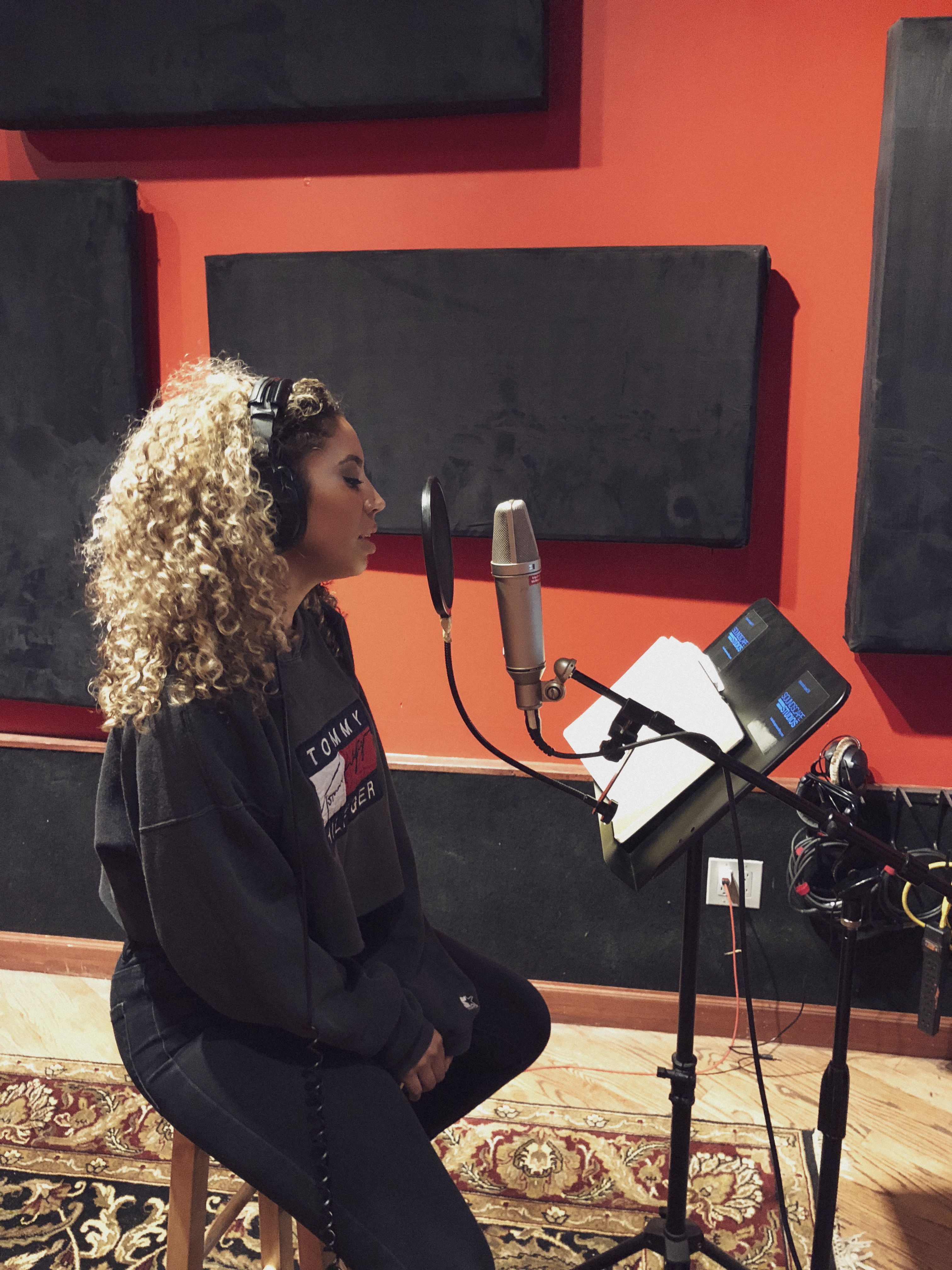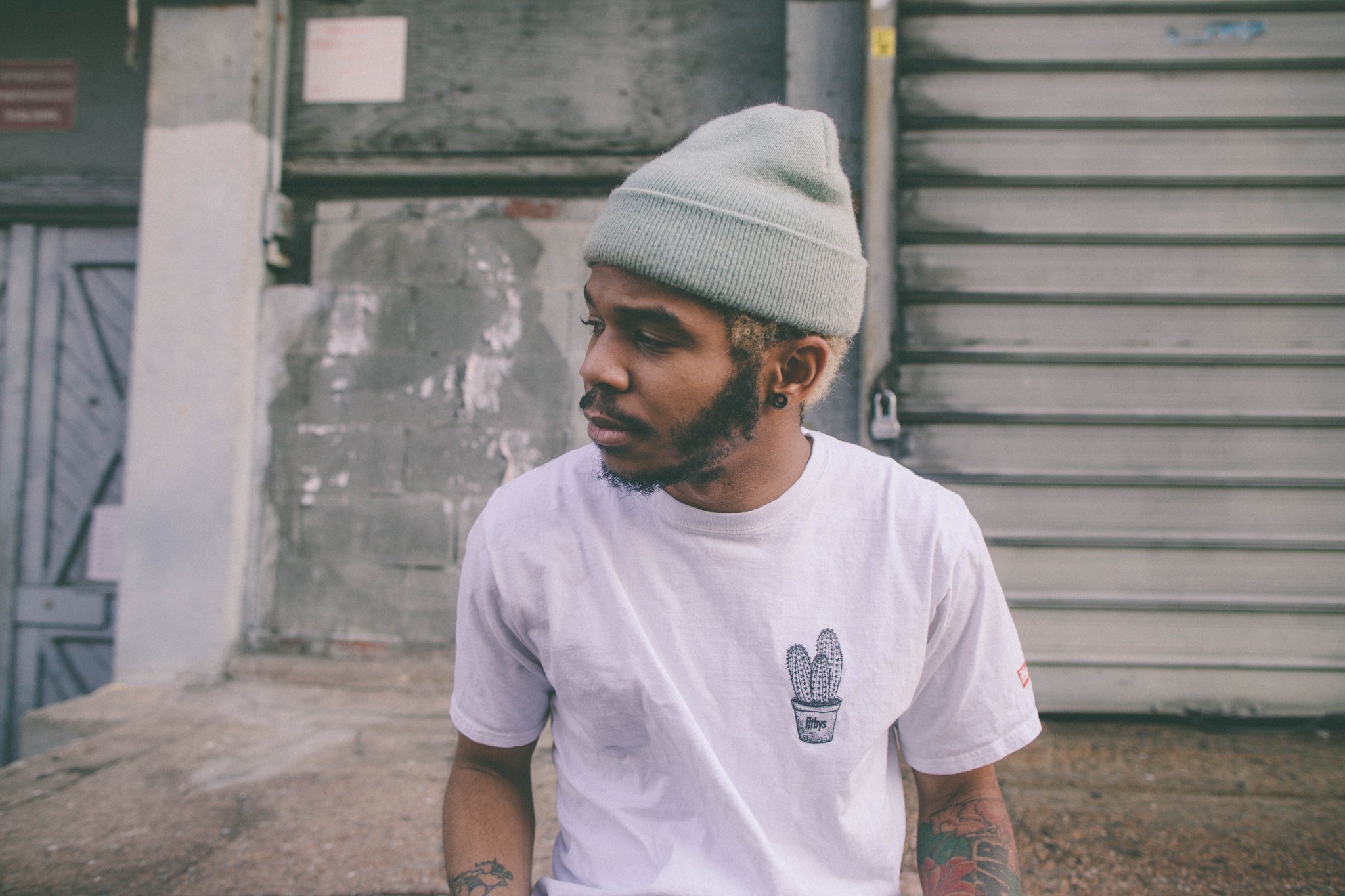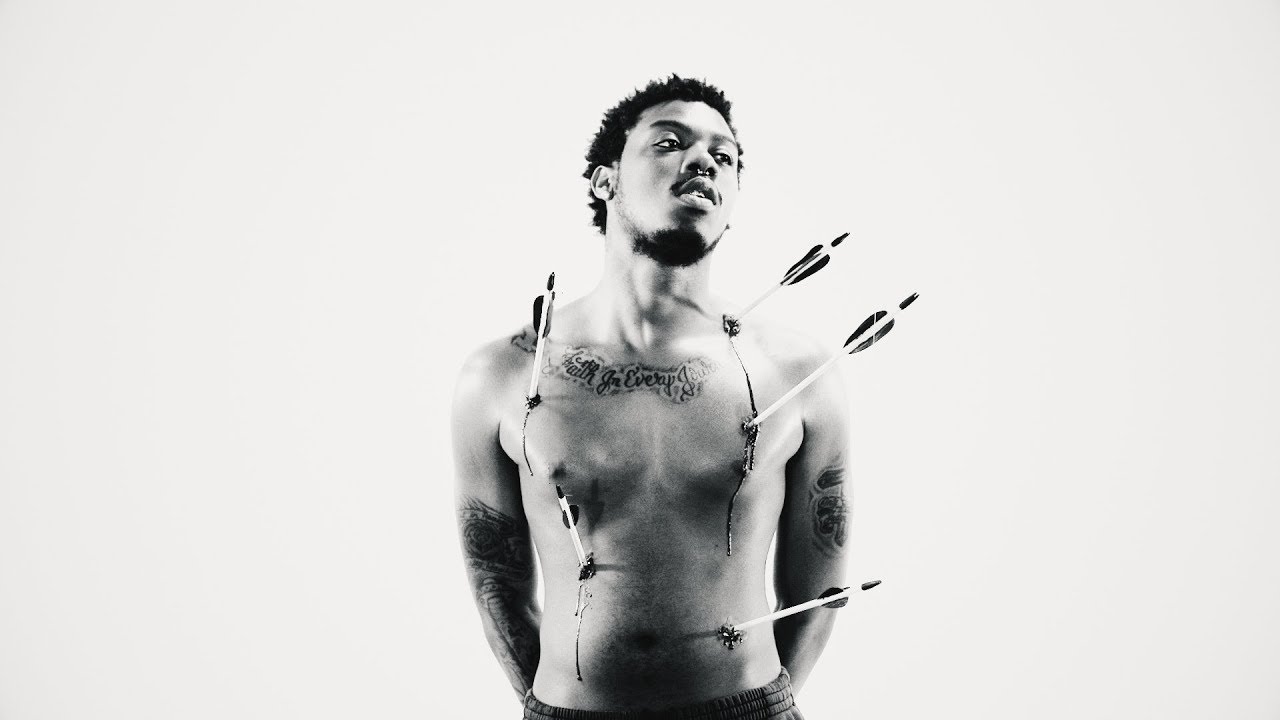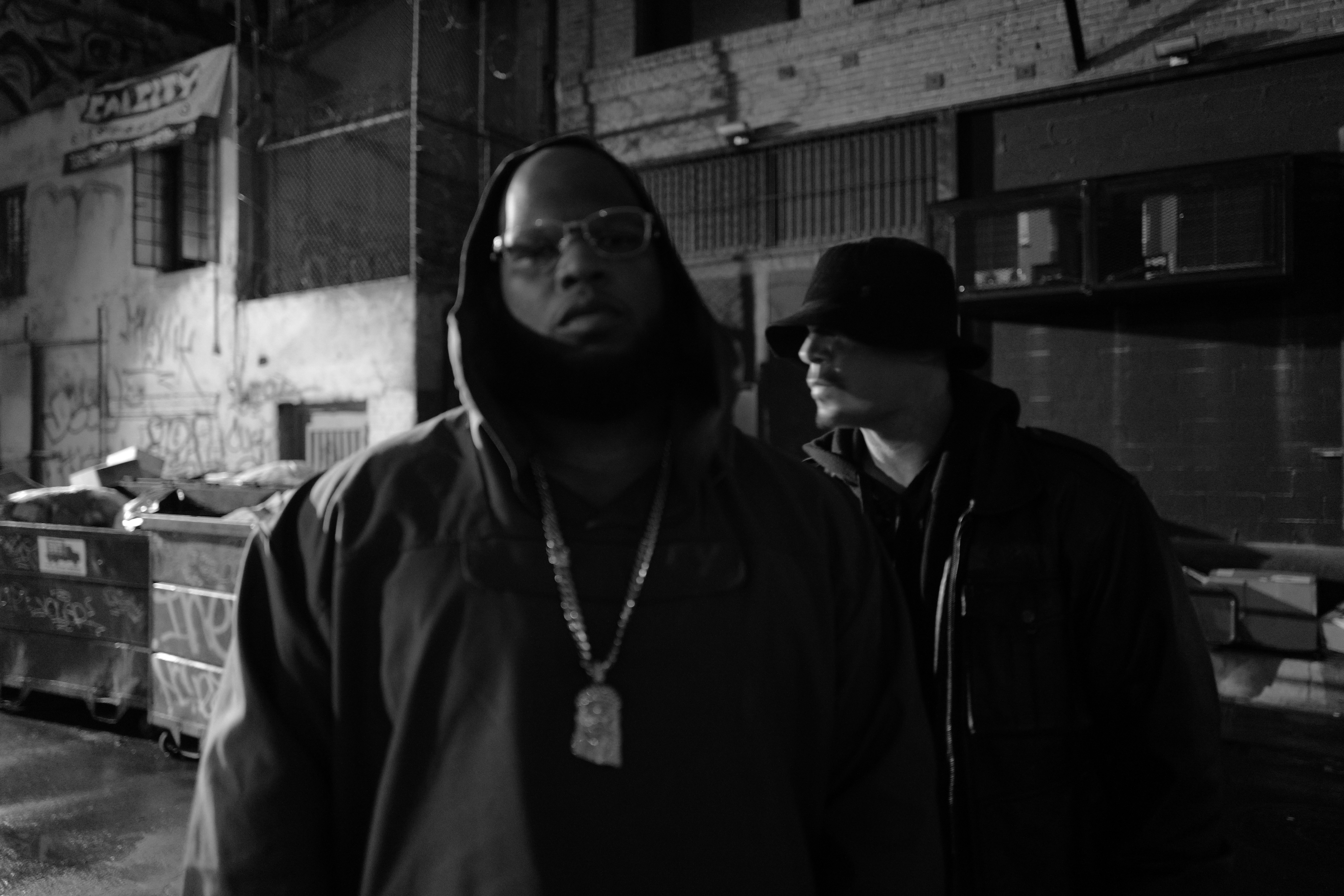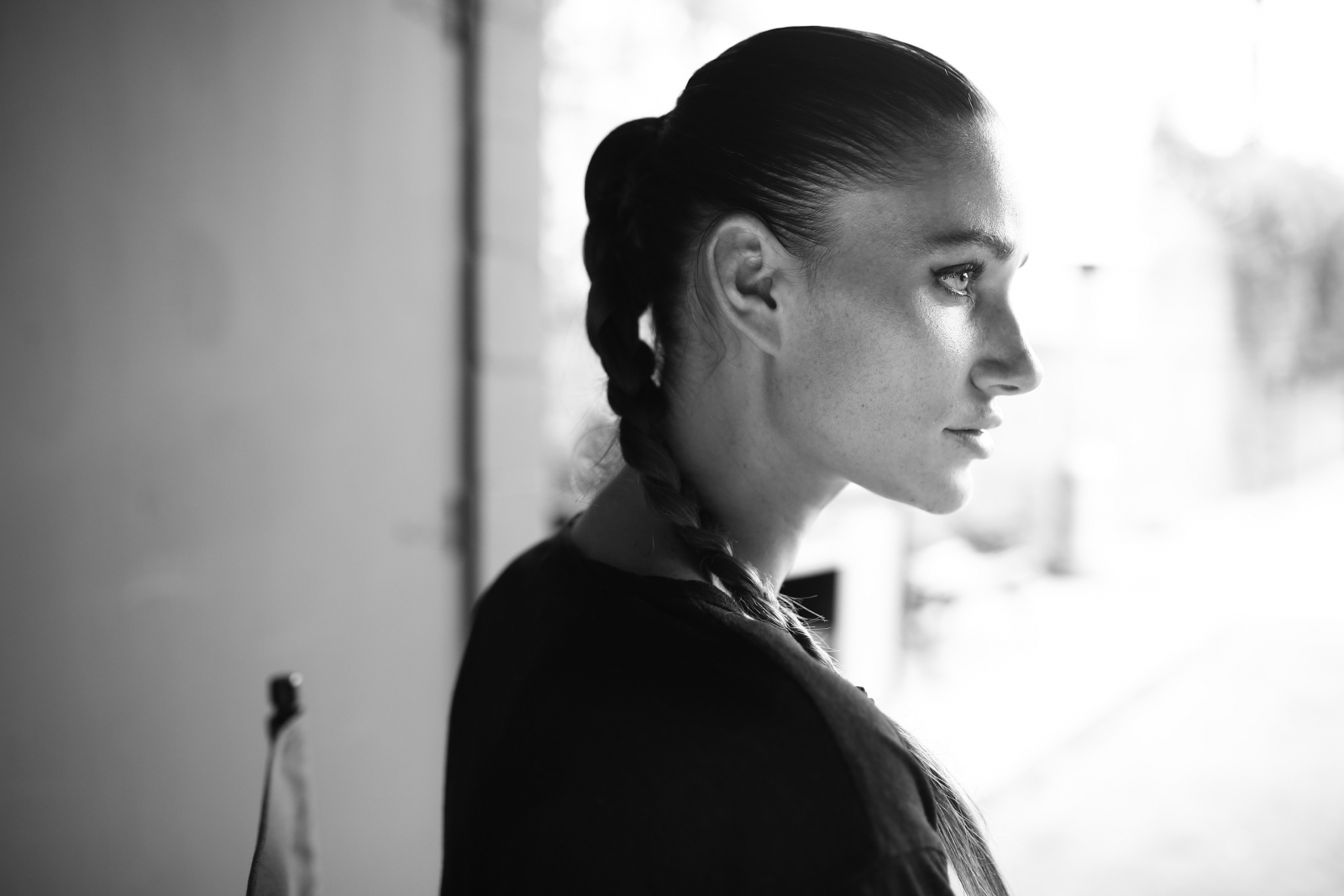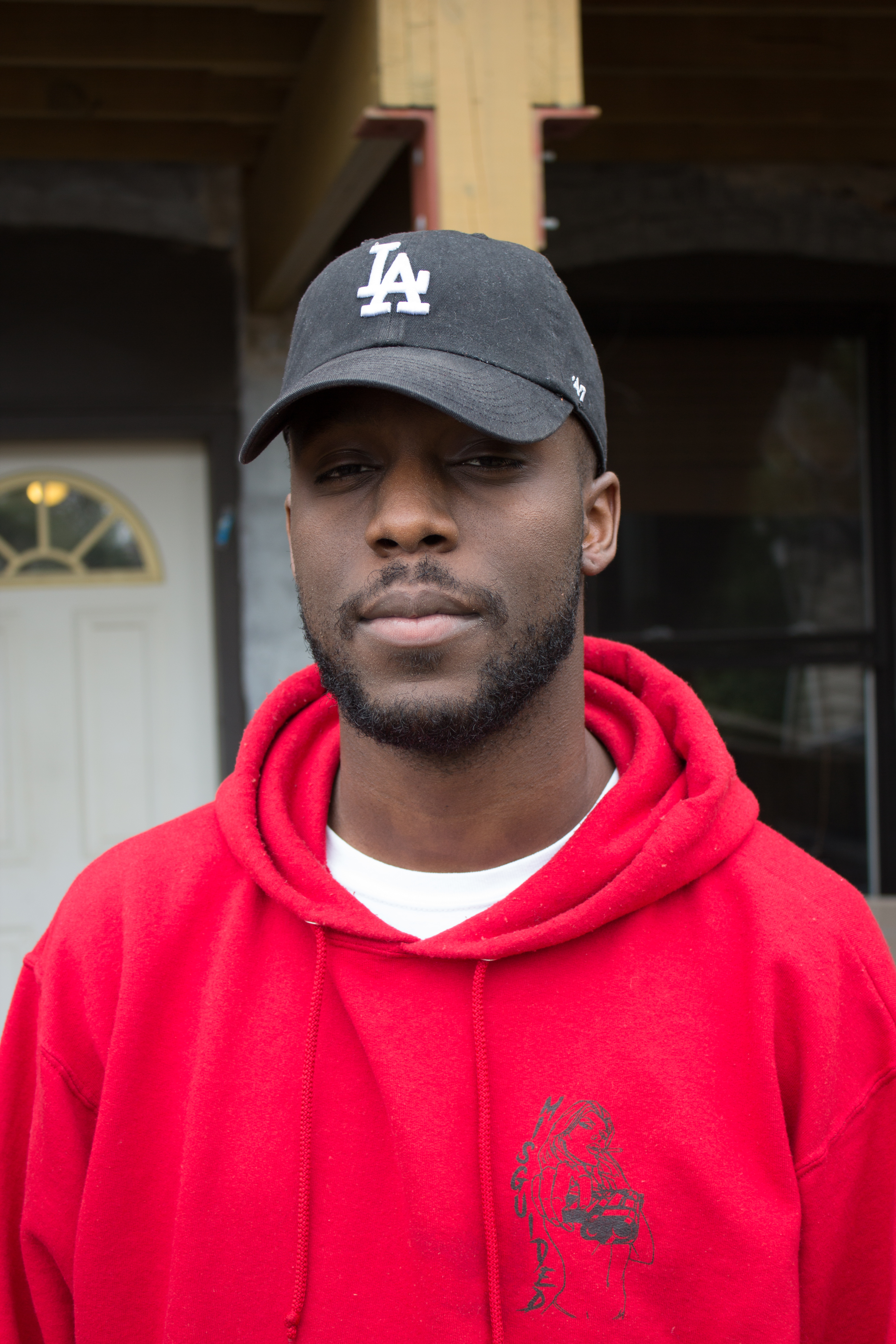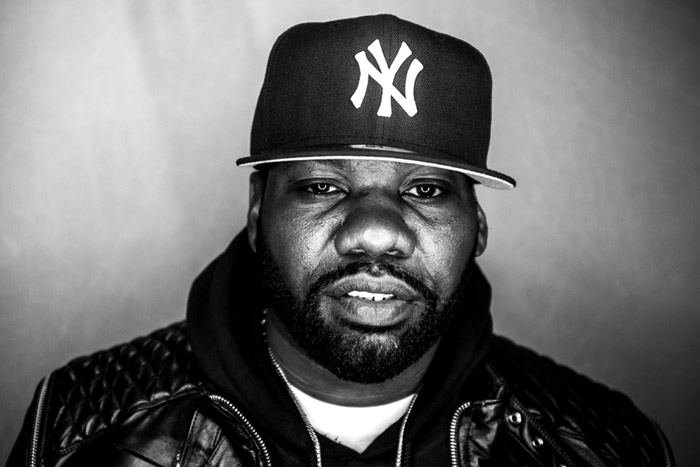RH First Look: Sierra Sellers
The next edition to our RH First Look series is with Sierra Sellers, an upcoming singer/songwriter from Pittsburgh, PA. Sierra's music blends acoustic textures along with neo-soul and R&B influences to create a smooth lo-fi sound. With a self titled project and a collection of singles out, it's exciting to see what she has in store. We sat down with her to discuss growing up in Pittsburgh, musical influences, and what we should be on the lookout for in the future. Check out our interview below:
rubyhornet: For any of our readers not familiar, who is Sierra Sellers?
Sierra Sellers: If you were to meet me and spend time with me you would learn I’m very kind, humble and shy. Then when you really get to know me, I’m super goofy. I have a lot love for music and kids. I am really ambitious and have a business mind. I’m still trying to figure out who I am.
rubyhornet: You started singing in the church at a young age. Was there anyone that encouraged you to begin doing this?
Sierra Sellers: No one had to encourage me to sing in church. Singing in church was something I felt compelled to do. It’s not a forced moment, it’s something that naturally happened. Singing for god is an entire different feeling than singing for yourself. It’s hard to explain. But you feel it throughout your entire body and you don’t have to think about it.
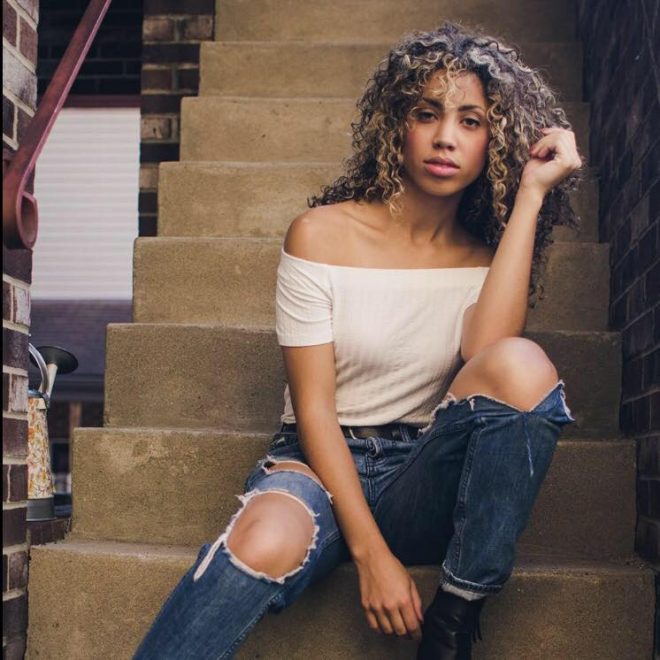
rubyhornet: How did the environment at the church, growing up in Sewickley (Pittsburgh), and life in general impact the music you were listening to growing up?
Sierra Sellers: I had a unique upbringing. My mother passed away when I was five. My dad worked late on the weekends to take care of my sister and I. I would spend weekends with either my mom or dads side of the family. I’m half black and half white. One weekend I would spend with my mom’s side which listened to a lot of Neo-soul, R&B, and Hip-hop. Then with my dad’s side we listened to strictly country or Led Zeppelin. The contrast and exposure of genres was interesting. I would go from Johnny Cash to Jodeci in a day.
rubyhornet: You were originally going to attend college on a basketball scholarship. Did you end up going to college or were you fully focused on music at this point?
Sierra Sellers: Growing up in my environment, I knew I wanted to go to college because I wanted to shape my own life. I knew I had to make it through an academic scholarship or through sports. I got a basketball scholarship, but so much time was concentrated on basketball and not music. When it was time to commit for a full ride or the D3 offer, I took the D3 offer. This is because if I quit basketball they couldn’t take away the scholarship. I played for a month and then a quit, telling the coach I spent so much time playing basketball to get to college, and now that I’m here I want to focus on music. I still hoop for fun.
rubyhornet: How does the creative process start for you when working on something new?
Sierra Sellers: I am a Pisces which makes me a dreamer. I typically start with the beat. I close my eyes and a movie plays in my mind while I narrate it. The first idea I have I usually go with. Sometimes it’s just one word and I’ll create a word web around that.
rubyhornet: What does stepping outside the box mean to you?
Sierra Sellers: Challenging myself to try things I’m capable of but that I was afraid to do. Growing up in the church you hear amazing singers with amazing voices that no one can touch. I don’t think I have a voice like that. Sometimes that insecurity holds me back. I like to be in the studio with people that push me in the vocal performance aspect. Song writing for different genres like pop was super interesting and challenging also.
rubyhornet: The percussion on songs like, “Too Good” and “Be Wise” have a traditional Hip-hop influence to my ear. What other factors effect how your music sounds?
Sierra Sellers: I never listened to the radio growing up, so when people say, oh that song came out when I was in middle school or high school, I don't relate in the same way. I listened to Lauryn Hill, Farside, A Tribe Called Quest, and all these older 90’s artists. I found Prince and Michael Jackson at an older age. I still couldn’t tell you what the number 1 song is right now. I hate when the radio plays the same 5 songs.
rubyhornet: What should fans expect in the near future?
Sierra Sellers: I plan to put out a project. My intention is put it out in the fall. I hate trapping myself by saying what’s next. I don’t like to pressure myself or anyone I work with by doing that. The time and freedom I have right now to build myself is great.
First Look: KOTA The Friend
The 25 years young Brooklyn native, KOTA The Friend, makes his first appearance on our pages today. With three solid projects, a collection of singles, videos, and more, the independent rapper has been on our radar for a minute. He will be playing at Reggies in Chicago on August 23rd.
KOTA manifests the classic New York style into a California paradise. Palm trees and sandy beaches contrast the depression and real life problems that can be faced when coming to age in New York. Check out our full interview below:
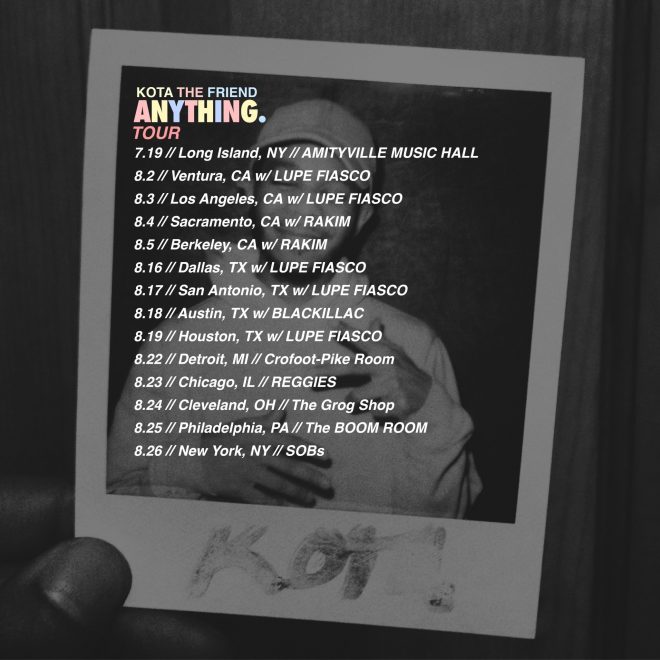
rubyhornet: For any of our readers not familiar, who is KOTA The Friend?
KOTA The Friend: KOTA The Friend is an artist in the purest sense of the word. I believe that while art can be monetized, it will outlive any industry. It will always be important. I’m a musician. I’m a classically trained trumpet player and I taught myself guitar, bass, and keyboard. I’ve been writing poetry since I could remember which made the transition to rapping seamless. I’m a self taught pro - cinematographer and video editor. I’ve shot hundreds of music videos for artists from New York City to California to Japan. I love creating and I create as much as I can.
rubyhornet: You were born and raised in New York, but you mention California a lot. What do these places mean to you?
KOTA The Friend: For a long time New York has represented some dark times in my life that I wanted to escape from. Out here on the East Coast we were constantly talking about getting out of the city and moving to LA where the sun is always shining and the palm trees tower over highways. My first 2 projects were mainly about escaping to find something new and better, so that’s why I reference California a lot.
New York is home, it’s where things get real for me. I’ve recently started to express my feelings towards my hometown and I plan on telling the stories of me and my friends in my new music + the album.
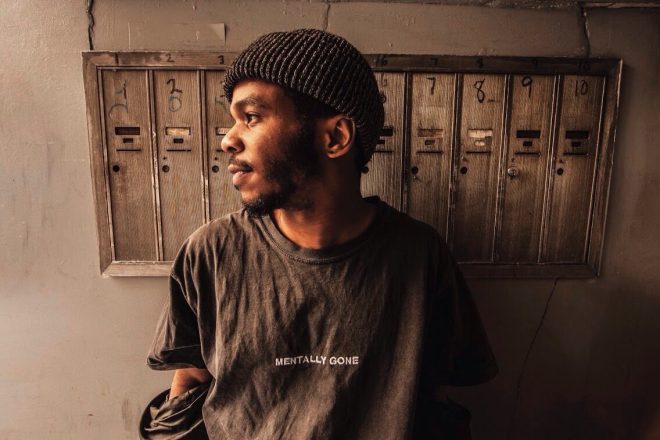
rubyhornet: What’s your definition of a friend?
KOTA The Friend: A friend is someone that you can depend on. A friend is someone that you can bring the worst news to and they can make you feel like its going to be okay. A friend will love you for the person you are and doesn’t judge you for being imperfect.
rubyhornet: Your lyrics are very honest. How do you approach writing a new song?
KOTA The Friend: Every song I write is true to my experience. Almost every time I begin with the music. I hear an instrumental and I get to writing, singing melodies and rapping gibberish. Then once I get in the groove I put my life onto the page until I’ve painted a vivid enough picture. I always tell the truth in my music because that’s the only way I can connect. You can tell when people are disingenuous so I keep it real.
rubyhornet: The growth from Palm Tree Liquor to Anything is evident. If you could go back in time and tell yourself anything while recording Palm Tree Liquor, what would that be?
KOTA The Friend: Thank you for noticing the growth! I honestly wouldn’t tell myself anything because my life is so beautiful now and I wouldn’t want to mess with the natural order. I was in such a dark place when I created Palm Tree Liquor and even Paloma Beach. Every day I’m just grateful that I’m no longer in that space and I’m reaching more people with my music.
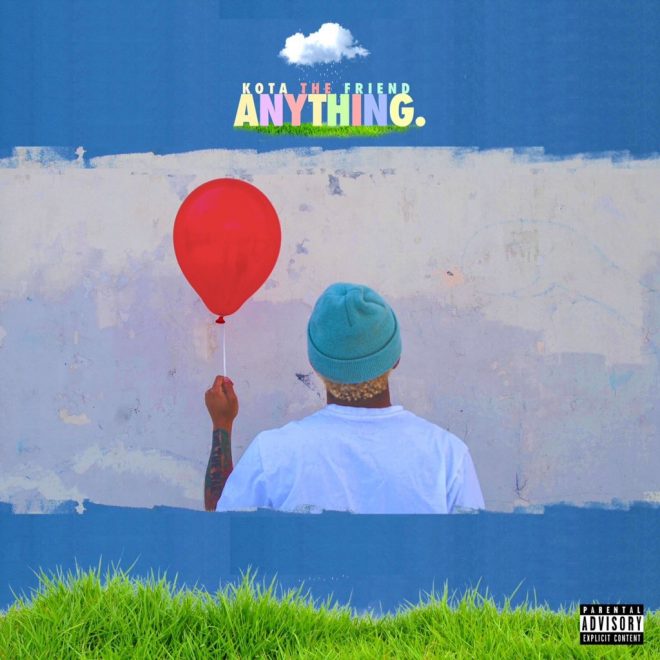
rubyhornet: You speak on depression and suicide on past projects. What advise would you give to someone who feels boxed in due to their mental health? Has music helped you get out of this stage?
KOTA The Friend: It’s not always easy trying to get someone out of depression. A depressed person can often be their own worst enemy. In my personal experience dealing with depression, I felt alone like many others. I felt like a failure, like I didn’t matter, like even God was against me and I hated myself. I turned my life around when I started to be grateful for the little things I did have. I would tell a depressed person that they are worth so much and that they are in control even if they don’t feel like they are. Even if you’ve been making the same mistakes for 5 years you can decide to live your life different from this day on. You don’t have to be the negative things that “they” say or think you are. I would tell a depressed person to take time to get to know the real you. If you don’t like something about yourself you can change it but you have to be honest with yourself about who you are and then make adjustments. No matter what, don’t let the thoughts of others define you. They are dealing with their own struggles and imperfections. On top of all of that, IT’S NOT ALL ABOUT YOU. Other people are struggling mentally and it’s important to understand this. Be kind to everyone no matter what.
rubyhornet: As an independent artist is it a goal of yours to become signed?
KOTA The Friend: Not really. I like being indie. It’s super fun. But I don’t know what the future holds. I’m making music, feeding my family and I get to be around my son all the time so I’m happy right here
rubyhornet: What are some plans from here on out?
KOTA The Friend: Just keep making music, touring, experiencing new things, eating healthy, being a better person and keep showing my people love. That’s it.
RH First Look: PK Delay
I had the pleasure of sitting down with PK Delay a few weeks ago while I was back in my home town of Pittsburgh, PA. It was a solid 90 degrees outside which felt more like 100. After pulling up on Carson Street and walking over to one of his friends crib we sat down and started chopping it up.
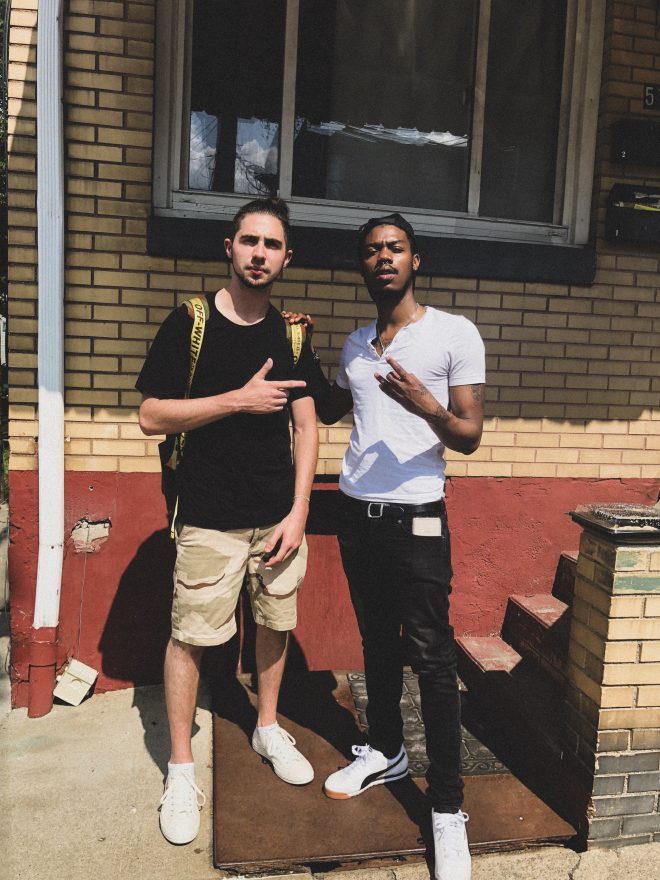
rubyhornet: For our readers not familiar with PK Delay, what can you tell us about yourself?
PK Delay: I’m a rapper. I play video games. Born and raised in the Hill District (Pittsburgh).
rubyhornet: How old are you?
PK Delay: 24
rubyhornet: What was the attention like you received from rapping in highschool?
PK Delay: I was clowned for the first few years before people started taking me serious. It wasn’t genuine hate, just on my ass for wanting to be a rapper.
rubyhornet: Did other people rap in you school?
PK Delay: Yeah, I met Pet Zebra when I was in 6th or 7th grade. We best friends now. Some of his friends from his high school started rapping with us. We started recording at a home studio. The quality and production was decent so we sounded good. My father is a gospel singer and my grandfather is a drummer. It’s in my blood.
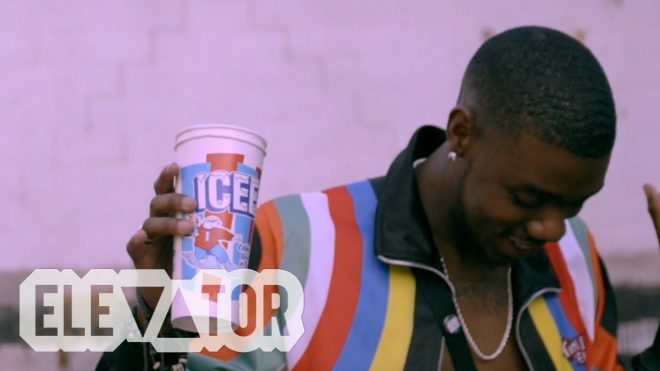
rubyhornet: Were you spending money on music at this point in time?
PK Delay: Yeah I was working at Taco Bell. Whatever I got from my check would be spent on music. We were recording our own shit, so we would be grabbing better speakers, interfaces, etc. I know how to mix well, but tend to head to other studio’s more now.
rubyhornet: What’s it like to be an artist from Pittsburgh and obtaining a platform?
PK Delay: We got a lot of rappers around here. Some of them suck. Some of them are alright.
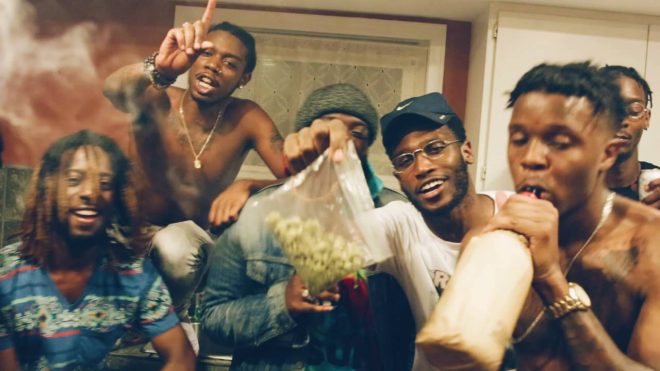
rubyhornet: Where is most of your audience coming from?
PK Delay: 2012-2014 had a lot of growth on my social media. A good mix of the city (Pittsburgh) and other places like Atlanta and the west coast have been showing love online.
rubyhornet: Near the end of “On That” a saxophone comes in and the track fades out. Who produced this track? Who are some producers you have been rocking with?
PK Delay: Jay Card, he works out of I.D. Labs. My bro laid the saxophone down live at the studio. I wanted some live instrumentation on their, so bro came through and played the saxophone to a flow I had.
rubyhornet: How would you classify yourself?
PK Delay: Emotional. Comfortable. I be speaking my mind.
rubyhornet: Would you consider your fashion similar?
PK Delay: Yeah. I rock whatever. Wear my hair however. Tattoos.
rubyhornet: Tell me about disappearing off Twitter and Instagram for the past few months.
PK Delay: I be dealing with anxiety and stress. Sometimes I be too tapped into my phone. Scrolling all day. 20 mins to an hour goes by and I'm like what did I accomplish just scrolling? I'm tapped into everyone else and I just needed to take some time for me. The break felt great. I had to get back on it now for the music.
rubyhornet: Plans from here on out?
PK Delay: Keep dropping music and videos. Got a few videos in the cut. Exploring different lanes with the music. Rap is boring to me. It’s easy. I want to try some more singing type stuff.
[youtube id="fHa0nDmRziw"]
[RH Interview] Meyhem Lauren: More Pressure
Meyhem Lauren loves turkey. I know this because I just spent last night binge watching episodes of "F*ck That's Deicious", the VICELAND show in which Meyhem Lauren travels all over the world with Action Bronson, The Alchemist, and Big Body Bes. Meyhem serves somewhat as the straight-man on the show. If Bronson is the foodie extremist, displaying an appetite that possibly only he alone can maintain, Meyhem is the regular guy that shows everyone else, 'hey, maybe these brains aren't so bad to try after all.'
In his rap music, Meyhem exists in a similar manner. One of my favorite emcees when it comes to making straight-forward rap music. Wordplay, metaphors, grimey shit, beautiful shit, that's Meyhem's music, which most recently took the form of an album (Gems From The Equinox) and EP (Frozen Angels) with the legendary DJ and producer Muggs.
"Mey raps. Mey is a monster," Muggs tells me over the phone on an early morning in late June (the same morning Muggs released this with DOOM and Freddie Gibbs).
The story has been told before, the one about how Muggs and Meyhem met during a session at Alchemist's studio, Muggs threw him some beats, some time went by, he threw him more beats, and they decided to do a project together. That became the 2017 release, Gems From The Equinox. They had so many songs done that they came back with the Frozen Angels EP, which you may have missed amidst all the Drake/Pusha/Kanye hoopla. And if you did miss it, stop what you're doing and go listen.
The shits is tremendous. And it's just the start. While those releases were predominantly completed over email, the two have since been in the studio together regularly. They are now shaping music hand in hand, and both say it's their best work together yet.
"At first I was just throwing him tracks you know, and he would pick what he likes and then he rapped on them," Muggs says about the early material. "But now we are dialed into a sound. So even the stuff we're [now] doing doesn’t sound anything like either the Frozen Angels or the Gems. It’s just like, now we're in studio everyday, and just like, figuring it out. Now I'm really dialed into the new sound to make him shine even more."
The bond between Muggs and Meyhem was strengthened by their shared aesthetics, musical preference for Mobb Deep and CNN. And while Muggs is so closely associated with LA Hip Hop thanks to his work with Cypress Hill and the Soul Assassins, both he and Meyhem actually grew up Queens. Oh, and they both love food.
"When we first started working it was kind of like, he’s Muggs, I’m Mey," says Meyhem about their early relationship. "But now it’s like, you know, we're friends, we're fam, that’s my man. We rode around laughing and throwing lobster tails on the grill."
Read on more my full interview with Meyhem Lauren as he talks about working with Muggs, his style of Hip Hop, and how all the success of "Fuck That's Delicious" only makes him want to rap more.
https://youtu.be/l3RW2hVR5Uk
rubyhornet: I believe that Frozen Angels came out the same week or shortly before the Nas album and in the middle of all the G.O.O.D. Music releases, and the Pusha and Drake beef, and then you got the 6ix 9ine's trolling shit. Did you guys think at all about where this project would sit with what is happening in Hip Hop overall right now?
Meyhem Lauren: We don’t ever think about that. We just think about what we want to put out, what we wanna represent and drop it. That’s it, you know?
rubyhornet: Yeah, he was saying too that you guys have been able to work more in person on new music, and that’s helped just making him better in working with you and creating more music. From your standpoint how has the relationship gone specifically working with Muggs?
Meyhem Lauren: I mean it sounds better. When we first started working, it was kind of like he’s Muggs, I’m Mey. But now, it’s like, you know we're friends, we're fam, that’s my man. We rode around laughing and throwing lobster tails on the grill. And I get what you said, like he knows more what beats suit me. Like I’ll be listening if the beat is ill or not. But that might not always be for me, like the beat that’s ill could be for B-Real for GZA or for someone else, may not fit with what I got. But now he just knows right away like, 'Yo, this is a Mey style beat.' We gotta have that chemistry, and that was crazy. In the last couple of days we knocked out 5 songs from the next project that are so crazy, they literally blow away everything we ever done before. We are just moving in the right direction.
rubyhornet: That’s exactly what he was saying and he also mentioned you guys grilling all the time.
Meyhem Lauren: Yeah (*Laughs*)
rubyhornet: Also speaking of that, you do work with different producers and are constantly writing and making music. The way that he might have a specifically beat for you, do you save any kind of style or is there any kind of subject or rhyme style that you wanna save for Muggs? And think to yourself yeah this is what I’m going to use on the Muggs project vs. something you do solo or Harry Fraud stuff. Is there any 'Muggs' kind of rap?
Meyhem Lauren: Naw, not in particular. Not where I’ll like plan to save a subject for Muggs, but Muggs makes dark beats. So it kind of brings darker rhymes out of me. Does that makes sense?
rubyhornet: Yeah that definitely makes sense.
Meyhem Lauren: Me and Muggs recently have been doing some up tempo beats. And I didn’t still try to strictly stay dark on that, cause that wouldn’t make sense. So it’s based on the beat, the beat brings the rhymes out.
rubyhornet: Yeah, obviously you’ve heard about Cypress Hill before you met Muggs. And I’ve read and seen interviews with you talking about just listening Cypress Hill’s music as a kid and a being big fan of Hip Hop. I’m curious if you had any just preconceptions of what it might be like to work with Muggs or even as a kid or aspiring rapper in your teens? The same way of someone who wants to be a baseball player might think about visualizing hitting a home run off Randy Johnson, had you visualized what a recording session with Muggs might be like?
Meyhem Lauren: No, the whole relationship started organically. I met Muggs at a recording session, I was at Alchemist's house. Working on completely different music, he came through, had some beats. He’s Muggs, so he knows about raps man. He was playing beats, and I had the opportunity to jump on a Muggs beat, like why wouldn’t I? And we just moved from there on. That was day one, day one was the session. We just got right to the work.
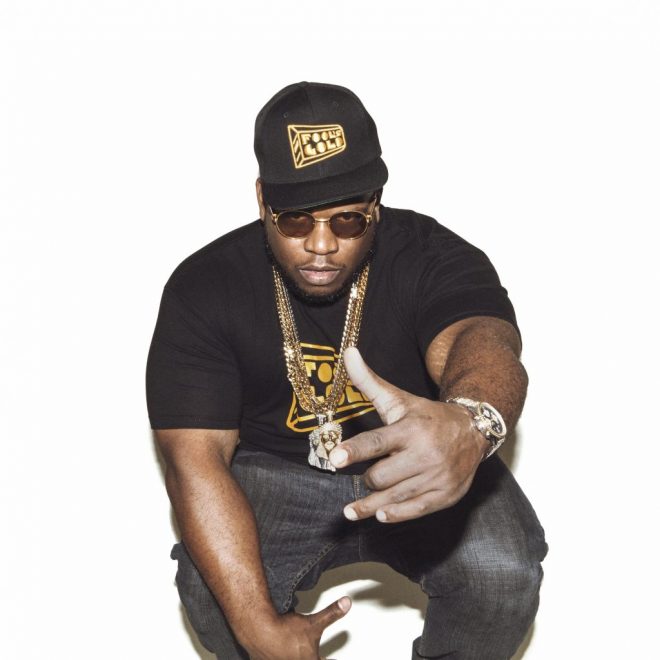
rubyhornet: Got you, Got you. I think I read a bio of yours that starts with….
Meyhem Lauren: Yo, I hate all these bios floating around (*Laughs*). I don’t even know who is writing these things? The only one good thing I can say is there’s a bio floating around where they shave like 5 years off my age. I’m not sure why, but I’ll leave that alone. But I don’t know what’s going on yo, I don’t even know what you’re going to say right now... But there’s a bunch of unauthorized bios all over the internet, I don’t even know how to fix that.
rubyhornet: Got you, I did see one that said you were born in 1989. And I was like I don’t know…
Meyhem Lauren: Yea exactly, I’ll take that (*Laughs*). I’ll keep it 100, I’m ‘83, but if you wanna say ‘89 hey.. Who am I to point that out. Everything else is wrong.
rubyhornet: Exactly, I read that and then I saw you talking about listening to Cypress Hill in like middle school or high school, like, 'Damn this motherfucker must’ve skipped like 5 grades. For Cypress Hill to come out while he was in high school'... But I read something where it described you, but I don’t know who wrote it, but it described you as a Queens based rapper that represents a genre of Hip Hop that is near extinction. And I thought that was interesting if you started your bio like that, maybe someone else wrote it. Do you feel that way?
Meyhem Lauren: Naw, you know what’s crazy? It’s actually a piece of a very old bio that I think that I wrote or someone else wrote. But it’s like someone just took all these bios and put them in the blender, and added things and put things that were never said. But yeah, I’m cool with that, and that does makes sense to be honest.
rubyhornet: So what does that mean to you? Why do you feel like it’s going through extinction? Why do you represent this genre so much?
Meyhem Lauren: I’m just playing my part. I’m just actually doing what I like. And I don’t think it’s necessarily going through extinction, maybe in the mainstream of the public eye it is. But it’s actually stronger… from what I feel. And I’m not talking about myself, because a lot of dope stuff that fits the category of that genre that has been on the rise lately. Like I said, it’s not like a niche thing or something like, 'Oh, I’m trying to be cool.' I'm really making what I like, I’m making what I’m listening to. Obviously it’s an updated version because of whatever year it is. But I’m just doing what I’m supposed to do, you know?
rubyhornet: Yeah, does having the success with the TV and cooking take any pressure, in your eyes, off making music? Does it go into this attitude of letting you making what you like?
Meyhem Lauren: Naw, my thing is 'more pressure.' Cause it’s like, I gotta remind dudes that I still rap. Matter of fact not just that I rap, but I rap first and foremost... I’m Meyhem Lauren, so it actually gives me more pressure to stay on top of my music.
rubyhornet: That’s interesting man. That’s an interesting concept, and I think that’s probably part of why you’re such a good rapper and artist. Is that you kept that mentality, where it might be easy for someone to be like 'I’m on TV, I have these other things. I’ll let that ride.' But you're attitude, now listening back to the music, it makes a lot of sense. So I think that’s dope.
Meyhem Lauren: You know something crazy? Beyond TV, I don’t know if you know, but I’m the voice of the World Cup. All week I have been doing voice ovesr for the World Cup. I’m at Fox everyday, updating games, and screaming and yeah doing crazy things. I just threw that in there cause I really wanna do voice overs now, I wanna cook food, but... I still wanna rap.
https://www.youtube.com/watch?v=JKJsEXVsftE
rubyhornet: Yeah, I saw that on your twitter like people were asking is this Meyhem Lauren on the World Cup Games? Are you a soccer fan or did they pick you for your voice?
Meyhem Lauren: I’m a soccer fan now. I love soccer. It saved my life.
rubyhornet: I also saw on your twitter that someone said something about you being a famous rapper and you replied, 'I appreciate that, but I’m just a regular guy from Queens.' And I feel like that sums up a lot. And is part of the reason that Muggs wanted to fuck with you. He said first and foremost you’re just a cool dude. Is that at the heart of how you see yourself or your identity?
Meyhem Lauren: Yeah, basically. Regular guy from Queens, it’s not like necessarily like average Joe regular, but regular meaning, I’m a certain type of person from Queens and there’s a bunch of people like me. That are in whatever. I’m just a regular guy from Queens, bro. I have been a rapper and done a bunch of things and I'm grateful for that. But that’s not who I am necessarily only.
rubyhornet: When we first worked with Bronson and brought him out here for our party and Closed Session, he said the exact same thing, and when we were just talking he was like 'I’m just a regular guy, I make music, but i’m just a regular dude from Queens.' That seems like that's a key part of your bond. And I know that you guys are real friends from like 12 years old.
Meyhem Lauren: Yea that’s my man forever.
rubyhornet: Outside of the Muggs, you said that you guys have another album that you’re working on now. Is there any other music or things that you want people aware of?
Meyhem Lauren: In between Gems from the Equinox and Frozen Angels I put out an album with Fraud.
rubyhornet: Yep Glass right?
Meyhem Lauren: Glass, yep and I loved that. It was a bunch of issues on the back end like it took while to get out so we kind of just threw it out there. But the feedback’s been incredible. Dropped a video with me and Conway. And I’m still gon’ drop one or two videos from that project.
RH In The Studio With: NIIA
On a humid Thursday in June I sat down with Niia, an upcoming jazz-pop singer based in L.A. on a back porch on the west side of Chicago . She was in Chicago for a week of recording at SoundScape Studio, working on new music at a clip of a song/day. There's something that immediately catches your attention when you first meet Niia, she looks like a fashion model, she speaks with an authority and has a zen, in the moment presence about her. A lot of interviews start off slow, with artists becoming more comfortable and opening up towards the end, but with Niia as soon as we sat down we were able to go in depth. She comes from a musical family and has a deep understanding of music, her sound is intentional but she isn't afraid to experiment. We talked about her influences and her process, people having sex to her music, how she got where she is now, where she wants to go, and how she plans on getting there. Check out the full interview below.
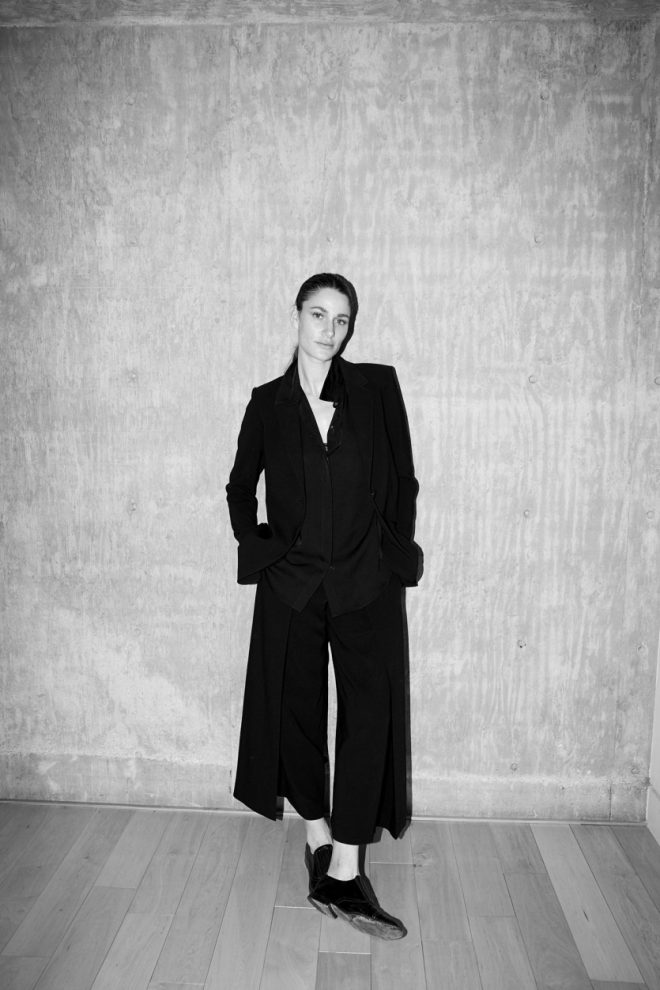
rubyhornet: How did today go?
Niia: Great! We wrote a whole song, which is nuts. We’ve written a song a day, which doesn’t seem like a lot but it is when you’re trying to write songs that you want to use. It’s great because a lot of the writer’s I’m working with are also artists, so they’re also really good singers. It’s nice having them demo some stuff vocally because they will do something that I wouldn’t do, and then it’d be cool for me to do it. I would never think to do that, but then they do it, and I’m like, 'tight i like that. But then that’s the worry, having another great singer demo something but then I go home and demo and i’m like damn, it doesn't sound as good as his voice. But today was great.
rubyhornet: Usually how long does it take for you to write a song?
Niia: It really depends. For example, some of my biggest songs I started 5 years before they came out. I put them in a folder on a desktop and they sat there for years until someone asked me to send them some demos. I had nothing else to send so I sent old ones and we re-worked it, rewrote parts, changed things. It can take years to complete a song, but it can also take a day to record a good demo.
rubyhornet: Why did you choose to record in Chicago specifically? Do you think that the location of the studio affects your music?
Niia: I think it definitely does, it shouldn’t but it does. And it depends on the studio too. If you’re at a beautiful big studio that’s a famous one, like West Lake in LA that Michael Jackson was known to be at, there’s this weird pressure. I think it does, you pretend that it doesn’t though. For me, I feel more like, 'alright, this is where Michael Jackson made Off The Wall. Let’s go! Something special is gonna come out of it,' and nothing good comes out that day. It’s more like what you make of it. It’s weird, yes and no.
rubyhornet: Is that a reason why you chose Chicago?
Niia: I chose Chicago for the writers. I think there are some really good musicians and writers and artists in Chicago right now that I really love, so I wanted to get out of LA to be honest and go on their turf, and pass the ball to them to lead. I feel like sometimes artists eat their own ego too much, and I’m a little sick of myself. It’s nice to get inspiration from other people. And there’s such good food here that I was like, 'I’ll go there for a minute.'
rubyhornet: What do you do to prepare for a recording session?
Niia: When I started writing my first album that was more: be open, try everything. That was cool, but I also then ended up with a bunch of songs that were in all different styles, written from very different perspectives. It was a little too disorganized, but you have to do that before you find your lane, or which one sounds the best with your voice. Now for my second time around, I know what I want and what has worked. I can challenge myself vocally, sonically, and in my production where I feel my weaknesses are and try to build on it. I know what I do well, and now it’s like, 'what can I do better?' and where are those writers and those producers that will take me over that goal line? As opposed to saying, 'I don’t know, let’s see what happens?' I don’t want to waste my time anymore, I know that I don’t want to make a country album - nothing against country, maybe someday I will - but I want to keep doing what I’ve been doing, just better. It’s hard though because you have to pre-write in a way, so I think 'what do I want to write about? What do I want this to sound like?' I find other songs that I really like and I make an inspiration playlist or a bunch of free write that I can pull from lyrically. I have a bunch of free written lyrics and things that I feel are the direction.
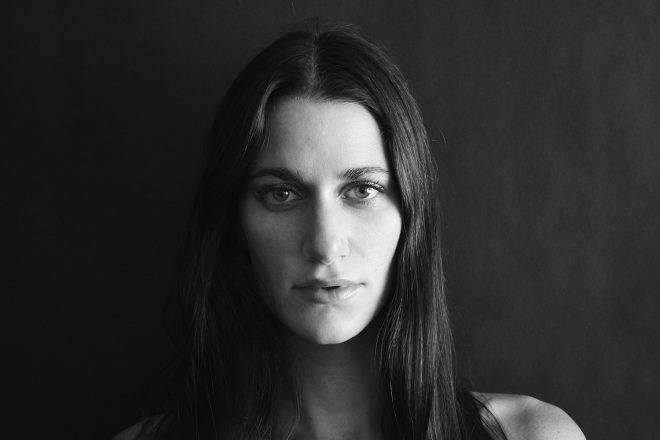
rubyhornet: Was I your first time in the studio?
Niia: Yes and no, when I was younger, to make money in New York I was singing on jingles. So I was in studios recording stuff for Subway commercials, singing about tomato sauce. I was always really comfortable in recording studios, but not for my own project. When I moved to LA it was time to really do something for real, I had to say something and define myself. There’s not a lot of bedroom studios in LA, but people will record in their bed. You can kind of record anywhere, my first album I recorded in my house, in our home studio. I was in and out of little studios and also in my home.
rubyhornet: Did you do bedroom recordings before that?
Niia: Yes, there were definitely some times when I was literally in my bed with my midi keyboard and I could just sense that my roommate was thinking, 'You’ll never make it, you can’t even get out of your bed” but I was like, “It’s all good though, it sounds good”. It’s so amazing because you can do anything, you have your little inbox, so it was just play time.
rubyhornet: How was that transition from your bedroom?
Niia: It was hard. With mic technique and being in studios can be really intimidating. You feel all this pressure. It felt that there was an expectation in a sense, signing to a record label and everything that comes with that. Trying to be a team player while also staying true to your own vision while also not knowing 100% what’s right. No one knows what makes a hit song or what makes an artist resonate. So you have to follow your gut while also listening to people because it might be good advice.
rubyhornet: How does your jazz background influence your sound?
Niia: When I was younger I started classical piano. My mom was a classical pianist, and I loved it, but then there’s a year when it gets really hard and you don’t want to practice, so I started fucking around and my mom was like, 'Why don’t you try jazz piano?' It was still structured and challenging so she was like, 'We’ll do jazz.' So I started on jazz piano, and back then I was super shy, and one of the exercises my teacher had was to sing along. My mom tells this story where one day he pulled her aside and said, 'Niia’s a good piano player, but she’s a really good singer. I’m gonna put her in my jazz ensemble group.' I was singing a little, but it wasn’t performing. My whole family sings, so it’s wasn’t like, 'Niia’s a star!” My mom gave me a Sarah Vaughan record when I first started jazz and I fell in love with her tone, and also the fact that all these women in jazz were all singing the same songs, but they all sounded so different. Billie Holiday sounds nothing like Sarah Vaughan, and Ella Fitzgerald and Nancy Sinatra. All of these female chanteuses were singing the same material but making them their own, so I fell in love and went down a deep hole of studying jazz vocals. Then in high school I felt like I didn’t want to play field hockey and listen to NSYNC all the time so I was really into jazz.
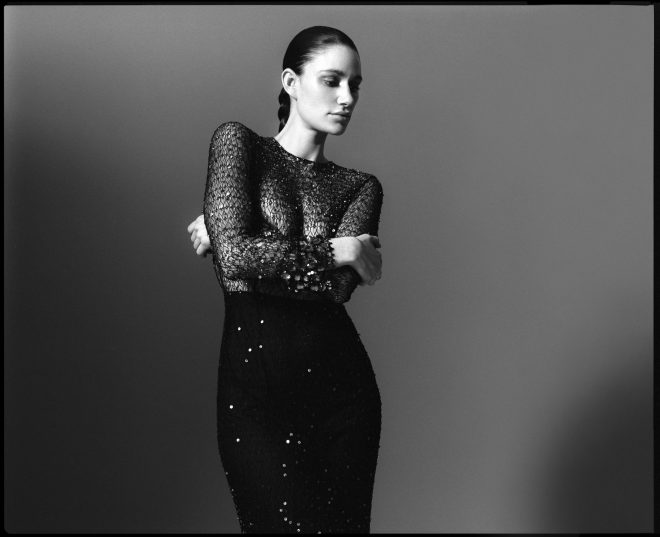
rubyhornet: What do you want people to feel when they listen to your music?
Niia: I feel like these days everyone is trying to make things about themselves, I feel like just sharing justifies bad music. I never got into music to talk about myself, it was a portal for me to express myself. Instead of just writing emo stuff in my diary, I could get it out singing other people’s songs. But then when I became my own artist people were like, 'we want to know who you are, people want to know.' I thought, 'really, I can’t just sing and have a good voice?' I realized that you can’t, people really want to know about the artist and what is honest and what isn’t. The more that I’m being transparent, people resonate more with my music, which kind of terrifies me. But it’s the same with the artists I really like, I want to know everything about them. So I get it, it’s just really hard. Figuring out what I want them to take away - I could never believe that people have sex to my music. So I don’t know. I guess I want people to know that I’m being honest and that I’m trying to challenge myself, so I hope they see that. Because now everybody says everything, there’s nothing that hasn’t been sung about. There are so many artists, everything is so oversaturated. The only thing I can do is just be myself and find a way to just be me and then automatically that will make me different than other female artists.
rubyhornet: What’s been happening since you released I?
Niia: A lot. When you go for it on the industry side, you psych yourself up and then it’s really hard. You see these people that look like they blow-up overnight, and it’s never that. And if it is, it’s because she’s worked very hard or someone championed her. We’re living in this age where you can see everyone’s progress and cool shit, so it’s really hard to make excuses for yourself or just become super depressed. There’s no ceiling to what you can achieve, so I’ve realized I need to set goals for myself of what’s most important so I can kind of rationalize the reality of things, or else you can float on and really feel like shit about yourself.
And when you’re really going for it, it’s a really competitive thing and you have to remind yourself what’s important. Making timeless music, it’s not about getting a million hits on the first day. I also think I’m also trusting myself more and picking the writers that I think I’m going to make something cool with and also really trying to improve. I think when an artist thinks they know everything, that’s when their career is over. In this process, I wanted to be a team player and compromise a lot, but also it wasn’t that hard. I think I know how to make music. And I have a hardcore Italian mother, who when I would come off of my piano recitals as a kid would say things like, 'You missed that B flat.' So I’m a good critic of myself. I know what I want to do better this time, and what I want to try and where I think I need to go with really exposing myself. It’s hard because you have to believe in yourself and also take risks, which sounds so cliche but it’s hard to do both at the same time. You have to be certain that you’ve got it, but also know that it might not work and it’s okay. And just be happy, it could be so much worse, I feel like it’s always life or death. I’m just making some cool jazzy pop so I should just relax. Smoke more weed is definitely a mantra for me this year, just chill out Niia. So yeah, that’s what I’ve been up to.
RH First Look: KoVu
KoVu, a rapper who grew up outside of Chicago, sat down with us a few days ago. We chopped it up about representing the suburbs, going on tour with the likes of Tory Lanez, being well known in a small town, and more. Check out the full interview below:
rubyhornet: For any of our readers not familiar with KoVu, who is KoVu?
KoVu: KoVu is a young kid from the suburbs of Chicago. I grew up in Plainfield, Illinois. It was a small town where everyone was trying to be a rapper. I didn’t get into rapping until my freshman year at college in 2012/2013. Made a dorm room mixtape called Good Morning Nightmares. After taking a break, I came back in 2015/2016 and dropped my ep Contrast. Played a couple shows with Waka Flacka, Vic Mensa, and Tory Lanez. Now I’m here.
rubyhornet: KoVu comes from the Lion King, because your mom said you looked like Kovu, a character in the movie. What kind of influence does Disney have in the culture?
KoVu: Disney is like Apple, they have everything. I was a huge Power Rangers fan so when they took over that I was really upset. I’m looking forward to the new Lion King with Donald Glover and Beyoncé.
[youtube id="CIw8RkwQN0I"]
rubyhornet: You originally wanted to be a singer, like Chris Brown, over a rapper.
KoVu: I got into music through R&B. My favorite artist is Chris Brown. I would imitate his dance moves. Then once Drake came out, he showed people you could sing and rap. Chance is another big inspiration.
rubyhornet: Do you still feel that way?
KoVu: If I could sing, I would do that 100x over rapping. I always hear these hooks and have a melody, but need to find someone to lay it down. I’ve taken singing lessons and practice a lot, but I don’t have the pipes like Chris Brown.
rubyhornet: In high school you were into dancing and theater.
KoVu: My parents were going through a divorce during this time. My study hall teacher Miss Dunham, who happened to be the choir teacher, saw that I was frustrated all the time. She put me in a second study hall where it was just us and she would teach me how to play piano and read music. Then I joined choir, and later theater.
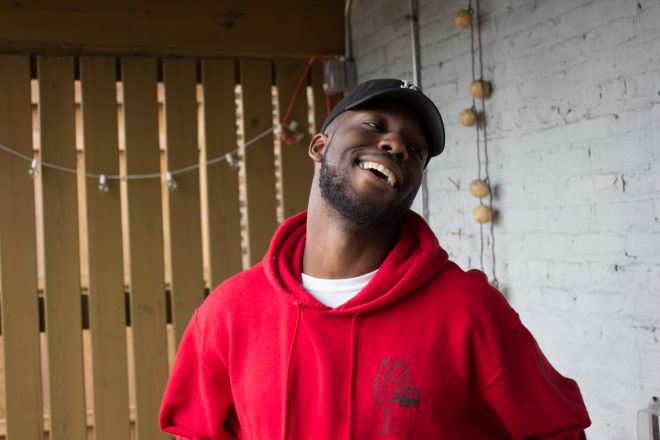
rubyhornet: How did this translate to your music and stage performance?
KoVu: My DJ, 1981 Toyoko and my other DJ, Cookup Cam turn up with me on stage. We make up dance moves and try to incorporate the crowd as part of the show. I like to make sure the crowd knows I’m just a person like them.
rubyhornet: Tell me about going on tour. Meeting Tory Lanez, Waka Flacka, and Vic Mensa.
KoVu: The Tory Lanez show was on my birthday. I just turned 22 and his stage energy was on another level. We played a whole Midwest tour with Waka. He taught me a lot about the business. He has his hands in a water company and an app to discover underground rappers. I only ran into Vic shortly at our show.
rubyhornet: How does it feel being well known in a small town?
KoVu: It’s weird. When I walk in somewhere, people whisper and talk. My friends still treat me the same. They are still going to call me an idiot. Kids in high school that didn’t talk to me have reached out about my music or have gone to some shows. It’s crazy to think that I’m representing this suburban town.
rubyhornet: The creative process on Contrast and working with only one engineer.
KoVu: JLP Studies Jimmy Renyolds. It’s rare to find an engineer when you tell him what you want and where it comes out exactly how you heard it. After we dropped Contrast it went on top 50 on ITunes. The creative process on the new album is different, I am showing more about my love life, my personal life, and going deeper than just the party aspect that my previous work covered. 4 years deep with Jimmy and I.
rubyhornet: What should fans be on the lookout for?
KoVu: Playboy, my new project with 16 songs. Coming soon.
[RH Interview] Raekwon on the meaning of Wu-Tang, getting out of Staten Island, and his motivation to be a great emcee.
"Exactly, way before Disney," Raekwon says about his early days venturing into Manhattan and hitting Union Square to catch burgeoning Hip Hop shows and parties featuring the likes of Rakim, Big Daddy Kane, LL Cool J and others. There's a laugh from the crowd, and Raekwon himself chuckles a little bit realizing the stark contrast between the grimy Times Square of the 80's vs the tourist haven now home to the naked cowboy, a large M&M's store, and yes, a plethora of Disney characters.
Raekwon is one of the founding members of the Wu-Tang Clan and a certified Hip Hop luminary. The immense achievements of the group and their beloved status within Hip Hop and music culture is not something that he takes for granted or holds haphazardly. "I’m always going to protect that flag," he tells the crowd, gathered at Chicago's Soho House for an intimate conversation with the Chef. "That flag is what got me here today. I probably wouldn't ever came to Chicago if it wasn’t for that flag. I probably wouldn't be able to take care of my mom today if it wasn't for that flag. I wouldn’t have kids probably, and they wouldn’t be able to go to great schools if it wasn't for that flag. So of course I'm going to hold that flag with dignity and integrity every time."
Decked out in a clean pair of Jordan's and matching Jordan brand shorts and fleece, Rae is dressed for the occasion, "I'm on my Chicago shit," he shouts emphatically to kick things off. This talk, one that took place on May 18th, has been years in the making, possibly since Rae rapped almost fortuitously, "catch me up in Soho, it's a no-no," on our CS classic "Keep It Politics", recorded during a weekend in the fall of 2010. It was roughly a year earlier when I first met the Chef at rubyhornet's original office and he dubbed me a "Baby Howard Cosell". I still have the Cuban Linx II posters that he signed for me using the same nickname proudly framed in my office, just above the desk where I am writing right now.
Over the course of an hour, we traced his path from Staten Island to legendary status, including how he found the RZA and used music a way to stay out of trouble, to making his mother proud through his success in the Clan. "The first thing I was thinking was that I could go back home and tell my mom I got a job. That was more important to me than anything. Just to go back and tell her, 'look your son ain't no knucklehead,' you know what I mean. 'Your son got something going on.'
Indeed, The Chef still has things going on. In 2017 he released his most recent studio LP, The Wild and has been touring regularly ever since. It brings me back to something he told me way back during that wild weekend in 2010, "As long as I know that I can keep it pushing, and keep my pen where it need to be, I'ma stop when I want to stop." Those words still hold true today, and if anything was clear from our talk at Soho House, it's that The Chef still has the passion and hunger to be a great emcee and he ain't stopping anytime soon.
Read our full interview below.
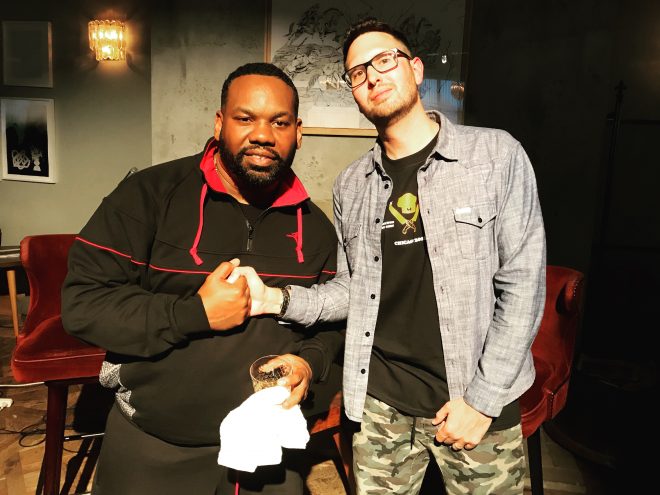
rubyhornet: What’s up man?
Raekwon: Peace!! I’m on my Chicago shit. What’s good!!
rubyhornet: You got the Jordans on?
Raekwon: Yeah of course.
rubyhornet: Whenever I go to New York and I step off the plane, the air hits me and it smells a certain way, driving into the city, I start seeing the buildings and I get an energy. And I always wondered, as someone not from Chicago, do you get an energy when you land here? Is there a Chicago energy?
Raekwon: Of course! Of course it’s in the air. You feel it in the air that you’re in Chicago you know? And I'm just being honest, it’s like… this is definitely one of my top cities. So I love coming out here.
rubyhornet: I want to start at the beginning with you. When you started to discover Hip Hop, where you were in you life? Was this around the time you formed the Baby Crash Crew?
Raekwon: I didn’t form the crew. I was just apart of it and it was really some neighborhood shit, you know? It was like hanging out with friends that you grew up with. And we came up with that name, BCC. BCC stands for, like you said, Baby Crash Crew. We was running around getting into shit, getting into trouble, but it more started from going to school together. We all went to school together, our jurisdictions was in the same area you know? Our district rather.
rubyhornet: So at what point did you discover Hip Hop and rap music? Was it the Sugarhill Gang? What was kind of that first thing? Because I heard you talk about Hip Hop acting as almost a magnet. You were just magnetized towards this music and culture. What was it that was grabbing you?
Raekwon: You know, just the neighborhood, watching the older brothers do they thing. They was like our big brothers and father figures and they would do a lot of hanging out. They would break out, they would be going to like block parties in other neighborhoods and that became a thing. Just to see what the older dudes was doing and then emulate what they were doing. So we know that they going to a party, we wanted to go too. You know, so that’s when Hip Hop was really, I'd say for me, say around 82’ or 83 I was a kid, and just growing up in the neighborhood and watching the older dudes. Everything they did, from what they wore, to where they was going, to what they ate. My generation of cats that was living in the neighborhood, we was just wanting to follow the procedure and do the same shit. And I remember at that time, we used to go and hang out on 42nd street up in Manhattan. And that was the place to be, that was the shit for us. Like you get on the ferry, you go across, jump on the train, take that up to 42nd street. And you see the bright lights and all that, and the movie theater; $5 a movie. And you see all kinds of crazy shit, crazy people you know. Triple X theaters and shit you know all that type of stuff.
rubyhornet: Time Square before Disney.
Raekwon: Yea exactly. Way before Disney.
rubyhornet: I got you. Def Jam was a big inspiration for what we do at Closed Sessions. And I only got to experience that through old music videos and going back through releases, but you grew up around the time that I only read about, those classic Tunnel parties were happening, Danceteria etc with artists like Run-DMC, Beastie Boys, LL Cool J etc. Where you going to those parties? Where you at those concerts?
Raekwon: You know what, there was a place that we used to go to called Union Square. And Union Square was like a nightclub, but it was like ill space, there was nothing fly about it. It’s just like a big recreational spot, but everybody used to go there from different boroughs. So that was one of the places that we knew that was hot. And I’ve seen many guys perform there from Eric B and Rakim, to LL, to Kane all of them and that’s when it really became interesting to us to go out and have fun like that.
rubyhornet: They say a lot of people, their first song or their first artistic expression is kind of like imitating someone they like. And so many artists I know have told me, 'Yeah I used to rap Wu-Tang Clan records in the mirror.' Who were you rapping in the mirror when you were first starting? Did you have that phase?
Raekwon: Oh yeah definitely! I mean, you know, we was on some Run-DMC shit you know, with the Adidas.
rubyhornet: Were you Run or DMC?
Raekwon: I think I was probably DMC. Wearing the glasses, that’s when Gazelles was out. I don't know if you all are familiar with those glasses though. But around that time if you had a pair of those on, you was important you know. So everybody in my neighborhood would be wearing those glasses.
rubyhornet: How far from that, you imitating Run-DMC, to when you became The Chef? Did you get that nickname from your crew?
Raekwon: The crew gave me that, you know. And around the time that we came out, Me and RZA were kind of already hanging out. I used to hang with RZA when I didn’t want to get in trouble from being in the neighborhood all the time, you know. It was like, you would either sell drugs or get in trouble, or do something different. RZA was always the type of dude who was moving through the city a lot. I would hang out with him because it was like a day for me, it would give me something to do. Like, 'Oh, I'm gonna fuck with him, you know, he’s a good dude. He’s on some musical shit.' And I would just hang out with him. But even before hanging out, we used to go rob and all that. Like stealing clothes out of certain department stores. You know, just getting into shit but also getting out of shit too. We would jump on the train, jump the turnstiles, and just hang out up in Harlem. Then we would run up in Macy's, and look at clothes. And the next thing you know I would see some slippers, I'm like 'Oh shit, I think I can catch that.' You know what I mean? We was just into that, we was just having fun.
But on top of that, music was always something that was important to us. And at that time RZA had knowledge of self, he was in the Nation of Islam. So all of that was infatuating to me. It was taking me somewhere. And I’m like, 'Yo, I could learn a lot from being around this dude.' And that was what really magnetized me to him. He had lot going on to be so young. I already knew he was smart. And he’s just like a big brother to me, you know. That’s how it was. I didn’t have no big brothers at the time. So you look at people around you and you say to yourself 'he got big brothers. His brothers is doing good. They look good, they ain't getting into shit, they work for they money, they're messengers. But they're also deep in the music.' So I kind of looked up to RZA as a big brother too. He took me in like that, and it was like, 'yo come hang out with me.' I knew his mom, his mom knew my mom. And after that I knew his cousins, Ol' Dirty and them, and we just became close.
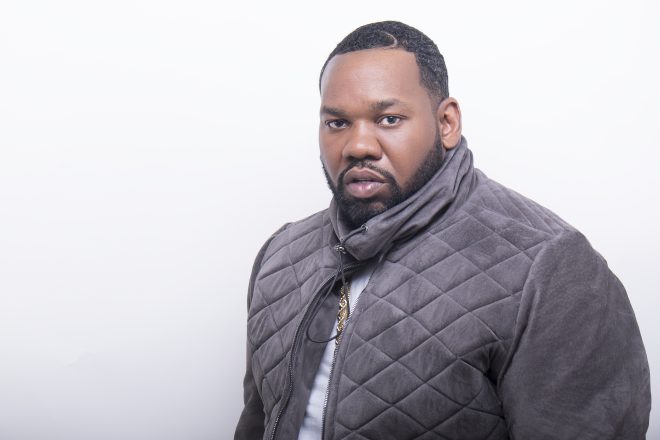
rubyhornet: It’s crazy how there were so many of you, nine emcees/producers in the Wu-Tang Clan. And all are solid, and it's not like you hung up signs on bulletin boards with the “looking for rappers” and taking names type thing. You all kind of were drawn to each other.
Raekwon: It’s called growing up with n***as in the neighborhood. It’s like when you grow up with dudes in the neighborhood, they become your brothers. And you would start to see who’s really down for you. I came from Brooklyn before I came to Staten Island. And me and U-God’s moms, our moms went to school together in Brooklyn. So don’t ask me how they made it out there, they knew each other and I guess it was just our parents wanted to migrate somewhere that was a little safer. And yea, you know, everyone just went to school, snapping on the back of the bus, listening to music and really just growing up as kids.
rubyhornet: I want to talk about the Wu-Tang a bit. You told Sway that you are very protective of the W. You said 'This shit is serious to me. This thing saved me.' Has your relationship to the W changed over time?
Raekwon: Well you know WTC, Wu Tang Clan, those are the 3 initials in my whole name. You know, I'm not afraid to tell y'all my government name is Cory Todd Woods. And I was like, 'Oh shit.' I started dreaming from that. Like too much going on here for it not to be a reality. I’m always going to protect that flag. That flag is what got me here today. I probably wouldn't never came to Chicago if it wasn’t for that flag. I probably wouldn't be able to take care of my mom today if it wasn't for that flag. I wouldn’t have kids probably and they wouldn’t be able to go to great schools if it wasn't for that flag. So of course I'm going to hold that flag with dignity and integrity every time.
rubyhornet: You have one of the most memorable openings in the history of music with the "C.R.E.A.M. start. 'I grew up on the crime side, the New York Times side, staying alive was no jive.” I heard that everybody knew that when "C.R.E.A.M." was finished it was like the touchdown. We got one.
Raekwon: We still was in the hood. Wu-Tang was starting to be heard worldwide from "Protect Ya Neck". Once that took off, we all was like, 'oh shit.' It was more just getting an opportunity to do something that we felt we was good at. That's the first thing. So we wasn’t thinking about the stardom yet, we wasn’t driven by that yet. We was more driven about reputation. When you think about certain boroughs, you got Brooklyn, Queens, Manhattan, the Bronx. But nobody ever really talked about Staten Island. As kids coming up, if we know that we like to travel and go places, yea I've been to Queens, I’ve been to Brooklyn, I'm saying to myself like, 'yo it's no different from over there where I'm at.' But a lot of places we would go, people wouldn’t talk about Staten Island. So that made us angry. That made us angry back home like 'the fuck? We part of the borough too.' So now we got on some shit like 'Ok, since y'all ain't acting like y'all representing our borough, anybody that come through the borough we’re flipping you now.' It’s like, you gotta get beat up so you can take that back to wherever you at.
So it was more just being frustrated and at the same time music, Hip Hop was just big, like I said, we was those guys that was breaking out, getting off Staten Island to go party other places. So you know, even today when I see a lot of dudes from my neighborhood and I say, 'Damn you don’t go nowhere, you don’t go nowhere, you don’t go nowhere, you don’t go nowhere, you stay right here, you don’t go nowhere…. He the only one that leave, he the only one that go somewhere.' My generation of dudes in the neighborhood, we always was down to leave. We was always like 'Yo come on, we going over here.' So we would see a lot early, and dudes from the neighborhood didn’t see that. So we was really determined to let people know what Staten Island is about. And the music was just going to be the outlet for us.
https://www.youtube.com/watch?v=GG62vuHd0dE
rubyhornet: I’ve talked to a lot of artists, and some get tired of their biggest song. Do you ever get tired of performing "C.R.E.A.M. or anything like that?
Raekwon: I do it for the fans because I know that that's something that they wanna hear that they can relate too. That’s like going to see Michael Jackson and he don’t sing "Rock With You" or "Wanna Be Starting Something". Certain records as artists we have to sing. I can’t go see Stevie Wonder and not hear "My Cherie Amor". So I always felt like I had to do those records, mandatory.
Rubyhornet: You mentioned traveling. And you have been able to travel all over the world. And I think performers have a unique perspective cause they’re able to get more experience with other people different from them. I think a lot of, especially in America, is very segregated there are patches of the country where there’s not any differences at all. You’ve been able to travel through different countries, people with different languages, religions, races. And I think for performers that can lead to a unique perspective of what makes people different and also the same. Have you learned anything about human nature through traveling, performing, and meeting people all over?
Raekwon: It goes back to, like I said earlier, coming up in the neighborhood, it’s a real thin chance that we make it out cause we already know the doors we're facing. Either you gonna die in these streets, or you're gonna become an athlete and that’s gonna be your way out. Far as getting jobs was concerned, it was tough, because of the neighborhood that we was living in. So a lot of times we were already judged before we even get to go do that, to go try and get a job. I remember my mom used to wake me up at 8 o'clock in the morning like, 'you gon’ go get a job.' And I'm like, 'aight, I’m down to do it.' And I try it, and it’s like, it never worked. So I come back and be like 'I tried.' And she be like 'yea you tried, but you gon’ try again.'
rubyhornet: What do you think is grabbing everyone else to the W? I’ve seen photos of people all over the world.
Raekwon: That’s the shit... I think it’s just that when you think about Wu-Tang Clan, you see 9 different guys that y’all all could relate to. And I think that’s what it is. People see a collected crew of guys who they could relate to with personalities. You got RZA who is a calm dude, kind of shy. But you got Ol’ Dirty who is loud as a motherfucker, God bless him. So I just think people just was like 'Yo, I fuck with them because it’s so much personality within them. And they seem like they 100% real and they respect where they came from.'
And we was always taught at a young age that if a man don’t know where he came from, a man will never know where he going. So we always was just going to make sure that we stayed being genuine and definitely appreciative. Cause like I said, we didn't know that it was going to where it went. But we had that confidence, that confidence took us to the next level. We believed that we were some ill emcees and we knew that we came with something different because back then you couldn’t get a record deal with 9 members. So we already knew that, but we was like, 'nah we all coming in together.' And that was just more of the plan. But everything happened so quick. I was 22 years old. I didn’t get a chance to go to school or nothing. So it was just like, 'yo when this shit hit….' The first thing I was thinking was I could go back home and tell my mom I got a job. That was more important to me than anything. Just to go back and tell her, 'look your son ain't no knucklehead,' you know what I mean. 'Your son got something going on.'
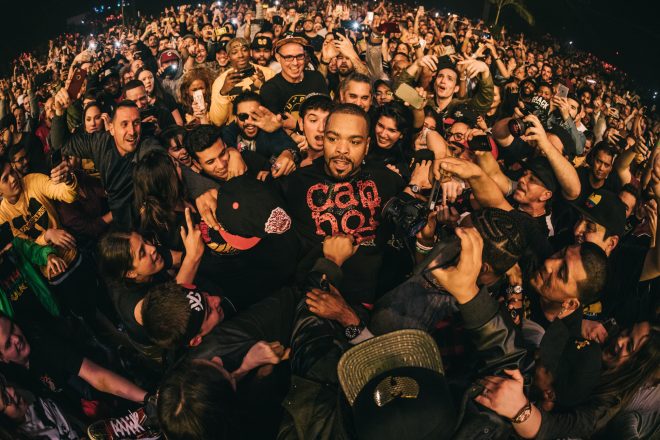
rubyhornet: That’s something I wanted to ask you about because I know that everything you do has a purpose, you’re very purpose driven. And it’s clear, and you talked about the motivation just now of that early music like 'I need to get the fuck outta here. We need to go up, prove ourselves.' What is the battery pack now that you’ve gone out and proven yourselves? What is the force now? When you were going into The Wild the newest album, was it still the push to be a great emcee, or something different?
Raekwon: It’s always to be a great emcee, it’s always to get better. I believe that if you believe in something you want to accomplish, it’s about you knowing that you could do it.
rubyhornet: On the opening skit on Cuban Linx you say “I don’t wanna have 200 thousand dollars, just to have 200 thousand dollars. I wanna know what we're gonna do with it?' If I was 24 and had 200 thousand dollars I might just be like “Damn I got 200 thousand dollars.”
Raekwon: Yea, but you know, we’d been getting money in the street a long time ago. So I felt $200,000 in my hand, and fly out of my hand with my neighborhood. Because my neighborhood was so much drug infested money, when crack came out, I’ve seen it on TV when they first talked about it. I think crack probably came out like a month or two after "Scarface" came out, the movie. So, the drug life was equivalent to a lot of money in my neighborhood. It seemed like all the older people turned into addicts. And it was like, 'oh shit, this drug is really fucking people's minds up.' And you know how it goes, maybe one of my friends will start selling, then the next thing you know them two will start selling, next thing you know they on it, then they on it... And I'm sitting here looking at my sneakers like, 'shit I'm bout to be on it too.' So it was more follow the leader situation. And one thing I can say is that I hung out with a lot of smart dudes. Dudes that really was calculated, they just wasn't knuckleheads. Of course you got some dudes who don’t know how to save money, but then you got dudes that know how to save money. So of course, I had to figure it out. But I started to hang out with dudes that was more smart with theirs.
rubyhornet: Something else you started talking about, you go from making music, Wu-Tang kind of start taking off, things get very fast paced, crazy. You’re also operating in the music industry where you can sell a million actual copies of an album. I remember when Wu-Tang Forever came out with the double disc that was like the height of MTV, the height of record stores, & then one day Napster comes out. And I apologize, I did illegally download some of your songs back in high school. So I do apologize.
Raekwon: Thanks for jacking my shit (*laughs*). Naw it’s all good. But I mean, hey listen, that’s what the music is about, it does this to you. So what? I’m going to be mad at you because you still wanna hear me? That’s what bothers me today with music, because everybody is trying to be so calculated about it, just love the music first. Don’t worry about how many sales he did? Or what’s going on with this? It’s like, 'yo get the music.' I ain’t gon’ front, I wasn’t buying CDs neither. I wasn’t buying nobody's music. I was just living, listening to they music. And that was the vessel for me. Just to be able to hear it and learn from it, and listen to shit that I felt was relatable. So I didn’t care about that. I mean, executives cared about that. We was just more worried about how are we going to be heard and if people gon’ like it or not. And I think that’s one of the first things as an artist that we gotta pay attention to. It’s just that, don’t think about all that, just show us your gift. Let us see if your gift is genuine. And that was important to us.

rubyhornet: That’s interesting because some older artists have said that if they had to come out right now with the way the music industry works, and the streaming, they wouldn’t even want to do it. They liked popping off back when you make album, you sell the CD, everyone makes money. When we first met, there were a lot of artist in your generation that would shun the blogs. And be like 'nah, I'm not fucking with that, nah I'm not fucking with that, who is this 20 year old kid? Fuck this.' But you didn’t want to be like the grumpy old dude and you embraced the blogs and younger generation.
Raekwon: And I was so happy to change my life, man. And I believed in my craft cause I had a lot of friends from my neighborhood, and of course the Wu, that was giving me that battery to be like 'Yo, you talented.' Like my mom didn't even know I was talented like this. Cause a lot of times, I would kind of like stay away from her, cause I was always getting into a lot of trouble. So I never gave her a reason to believe me and know that, 'yo, your son is involved in music.' So I guess it was just having fun. Music is supposed to soothe your mind and just make you have fun. So for us, it was just about that. It was about getting the recognition down the line and make a couple of dollars to get the fuck outta where we was at. I was smart enough to know that when I came into the business, 'yeah I’m going to make some money and I'm going to move my family outta here. We are going to have a better life.' But I know I can’t do that if I’m not 100% locked in with what I believe in: my craft.
rubyhornet: What’s the biggest difference or biggest difficulty operating now in streaming? We don’t get to hear from an artist directly what they think about Spotify, Apple Music. What’s unique about operating now?
Raekwon: It’s a business, it’s more digital now, it’s more technical. And too me, it kind of took away from the culture a little bit. Because I don’t even know if people even want CDs anymore, you know. I remember back in the day that was the most fun shit. To go to your local record store, grab it, open it up, look at the pictures, read it. Now it’s like you just press a button. So it’s like, if that was a math test, we all fucking cheating right now. We ain’t learning from the shit, we just pressing a button. We not really as infatuated the way we were when we had to go get that tape or that CD and stuff.
rubyhornet: Does it change your purpose when you go in and make music or when you're plotting a release? Do you have a different mindset now?
Raekwon: A little bit, only because my business partners, they constantly bring me situations that are to the forefront for me. But when I’m in the zone, and I’m making an album, I don’t think about that at the moment. But I do have to sit down and hear from my team, what their plan is, and they would present it to me and say, 'look this is what’s going on. And this is how we got to adapt to what’s happening today.' So I can dig it. But when I’m in my writing process and creating music, I’m just right there, and I’m like, I just want to make music.
https://www.youtube.com/watch?v=Aav3Jj-GI0g
rubyhornet: One of the things I wanted to talk to you about is Stretch and Bobbito. You mentioned that as one of the things, when you were younger, that got you hooked on stuff from tuning in. You’re in their documentary, "Radio that Changed Lives". And there’s an interesting theme that starts to emerge. Jay-Z, Fat Joe, Nas, Busta Rhymes, I don’t know if you also talked about this, but they started to mentioned how this whole generation of artists were coming up through their radio show. And then people were getting record deals off the radio show. Dante Ross tells the story about hearing you all, then rushing to the studio to sign Ol’ Dirty Bastard. And Fat Joe was like 'A lot of people got deals from the show.' And then Nas was says something like, 'Yeah a lot of people in our generation, we know we owe you.' And Stretch & Bob say how they pretty much had to pay to do the show. And I see them as unsung heroes in a way, and then I start to draw the similarity to blogs that started about a decade ago that are now just going out of business. And the writers are going onto other things. As someone that's had Stretch and Bobbito, and then embraced the blogs like Nah Right, which has just shut down, do you see the parallels?
Raekwon: I call those guys the referees in this sport. All the social media cats from back then, that was making it social media then. These guys had a little radio show. But they shit was at night, late at night. And you know, a lot of times we all are listening to the music late at night. And they show was one of the shows that was consistent. They always played what’s going on, and they had good conversations. And they was willing to open they doors up to dudes. And when they opened up they doors to dudes, it was like a certain kind of pinnacle that we was getting to, and to know that we made it there. And I think that had a lot to do with the momentum of our careers because they was the first guys that we knew that were certified. We were like, 'yo they wasn’t getting no money from no programmers, they just had a little show.' But they had a lot of integrity when it came to the music. And they knew they shit, and that when you got everybody in the city knowing that, 'yo I gotta listen to these dudes because they know what they talking about.' And even before we knew Stretch was a white guy it was like, 'oh he’s white?! that’s cool tho, that’s cool tho, he’s down for the cause tho.' It was like something real quick then it just went away. But we respected the fact that he knew his shit. Bobbito... They knew they shit. They knew everything, they knew the clubs, they knew who was hot, they knew where certain cats was from. And to me, that became our big brother to the system of the music, to the culture rather. So it was like, 'oh, we could go up there and holla at them?! Oh something is about to happen.'
rubyhornet: I saw you guys literally Bum Rushed the studio that night.
Raekwon: Yea, I mean you know, we was just happy to be there. It’s just...yo we’re trying to get on. This is going to be our first place. We gon’ talk a lot of shit, they gon’ talk a lot of shit. And they gonna kind of like dictate what they feel where we at. So it was just more about getting that co-sign from them too.
rubyhornet: I wanna ask one more question. Then I’m going to let some people in the audience ask some questions. But do you remember whe we picked you up from the airport when we did the first session and went to the jamaican spot. Do you remember the first thing you asked me when you got in the car that day?
Raekwon: No.
rubyhornet: You asked “Is MC Hammer a legend?” And then you went and talked about how you felt Wu-Tang Clan was legendary status. But you yourself could not claim legendary status yet. And I’m wondering in the time since you feel like….
Raekwon: I’m a legend?
rubyhornet: Yeah.
Raekwon: Aight, put it like this, I'm a baby legend. I ain’t a grown legend. But my group is legendary. The group is legendary, let’s call it how we call it.
rubyhornet: Styles P said “Hip Hop is a young man's game.You either young and you do your thing. And then you either fall off or become a legend.” And that’s something that you told me too, “You fall off when you decide to stop. And until you decide to stop, there’s no fall off.” So I think, you’re humble about it, but I think you can hit that claim for sure.
Raekwon: That’ll work, I'll take it!!!
[RH Interview] Black Milk Breaks Down The Fever, and The Importance of Truth
For over a decade Black Milk has been an integral part of the Hip Hop scene in Detroit, and the independent scene worldwide. As a producer, emcee, and performer, Black Milk has had a dynamic career, completely changing his style more than a few times while always staying true to himself and to his art. Back in February, he released his 7th entirely self-produced studio album, Fever, which he is currently touring on. Recorded in 2017, Fever is an intense, emotional album that addresses the tumultuous political and social climate in America since the 2016 election. I called him up to talk about his career, his city, and to ask if he thinks there is a cure to the “fever” that we all have. Read the full interview below.
https://youtu.be/rihOZ6z2ZyY
rubyhornet: How’s the tour going?
Black Milk: It’s going good so far. It’s good to play the new music, hear the new music and see people’s response to it, so it’s been good.
rubyhornet: The outro on laugh now cry later says “He just said the truth will make us free/Question that we have to ask is do people know the truth?” What is the truth that you want to bring to the world?
Black Milk: I don’t know if there’s an actual truth that I’m trying to bring to the world outside of staying true to what I do, who I am and what I believe. You know what I’m saying? Even with this album, I’m giving my own perspective on how I see the world and what’s going on in this day and age, I guess that’s the only way I can put that answer.
rubyhornet: It’s interesting because right now is a time in history when truth is up for debate.
Black Milk: Yeah definitely, even when we all know what the truth is, the powers that be find another way to distort what we already know. So many people are easily swayed into believing nonsense, that’s where the challenge comes in.
rubyhornet: So do you think that people do know the truth?
Black Milk: A lot of people do. Or at least I feel like some people have common sense, or a good intuition, to know when they’re on the right path. It’s a challenge to get the other side to not fall for the trap. It’s like a war that’s been going on for so long. It’s amazing how the people who always fall for the trap can’t see how the world is being pulled over their eyes. A lot of people don’t want information, some people just ignore the truth. It’s a cliché that has been around for a long time, the truth hurts. And it really does hurt and people have to face what the real is.
rubyhornet: One of the themes on Fever is how people are getting information, and how the culture around that is impacting us. If we look at the last few months in hip hop from Kanye West to the Drake/Pusha T beef, to what happened yesterday with X is this what you’re talking about on “Laugh Now Cry Later”?
Black Milk: Yeah man, I feel like we’re getting to a place where you’re not even conscious that you’re being consumed by being online, on social media. How many hours are you spending on your phone, in front of your screen? So me making a song called “Laugh Now Cry Later” it’s just about putting attention on that topic. It’s also about the emotional rollercoaster that you’re going through that people don’t even realize they’re going through. Feeling all of these different feelings while looking at all these posts. Scrolling through their timeline, stuff making them happy, stuff making them mad, stuff making them sad. You’re going through an emotional rollercoaster every few minutes, every few seconds, and it’s going to be interesting to see how that plays, if it even has an effect on us, years down the line. Especially the younger generation because they were born into this era of social media so it’s going to be really interesting to see how they handle it.
rubyhornet: And you don’t even really have time to process it.
Black Milk: You don't. You really don't. There’s so much coming at you that you put your phone down and it all kind of blows through your head and disappears. It’s an interesting thing, and an interesting period of time to be living in.
rubyhornet: You’re an artist that came up on the cusp of two major moments in the rap game, it was right at the end of the old way of doing things, and the very beginning of social media, how did that impact your career?
Black Milk: Coming up online and on social media, the internet is a gift and a curse. Without it who knows if I would have an audience. Who knows how I would have been able to connect to all of those people who listen to my music. If you take the traditional way of getting on, getting a major record deal then they take you through the motions. I don’t know if my music at the time would be considered something that a major label would take on. Luckily enough I had the internet. I came up in the MySpace age so I used Myspace as a tool to get exposure, to get connected to people and put my music out there. It was a snowball effect, over time it just kept building and building. The internet is a tool, but I think over time we’re being used by the tool instead of us using the tool, I think everyone is a victim of it to a degree. It’s kind of not to be caught up in it, it’s just the world we’re in.
rubyhornet: What were your main influences when making Fever?
Black Milk: I was listening to a lot of wavy type stuff, really vibey stuff at the time. I remember I was listening to Tame Impala’s Currents a lot. I was listening to The Internet’s Ego Death a lot too around the time so it put me in a place where I wanted to make something vibey and good, with my own twist of course, and that’s pretty much what I did. Going into the album it was supposed to be a feel good, upbeat album but because of where the world was at at the time and everything that was going on, you know with the election and police and everything, it changed what I was going to talk about, I felt like I had to give my perspective and address certain things that I saw going on. So when the album came out the music was feel good but the lyrical content was kind of heavy.
rubyhornet: So is that what the “Fever” is?
Black Milk: Yeah, it’s about living in a time when it feels like the temperature is high and everyone is on edge. It feels like it could explode at any minute. That’s why I named the album Fever.
rubyhornet: Do you think that there’s a cure to the “Fever” that the world has now?
Black Milk: Hey man, look, I’m not sure. Human nature is an interesting thing, I don’t think it’s anything that you can really cure. I do think that a lot of people are influenced by outside forces. I think that’s the goal. All you can do is influence people’s behavior and if you don’t get a hold on some of that then people will just keep getting crazier and crazier. I think that’s the first part, targeting the different forces that influence the way people think and the way people act, especially when those forces come from a negative space.
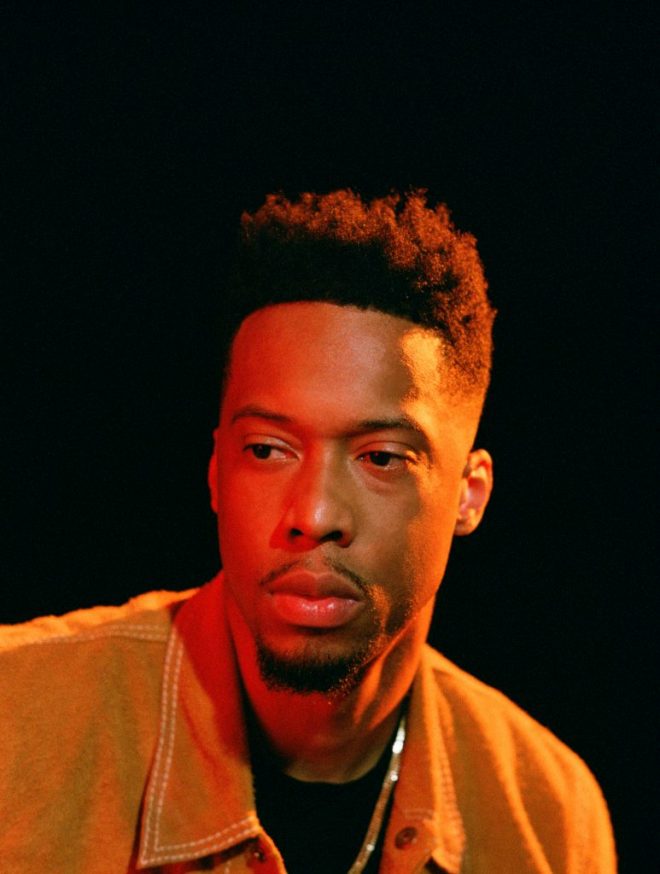
rubyhornet: What makes the Detroit sound?
Black Milk: The environment, I think the environment plays a part in the Detroit sound. It’s kind of a gloomy city, it’s always pretty cloudy and grey. I think that affects the music. Years ago when the auto industry began it brought an industrial vibe which is why a lot of the music sounds the way it sounds now. The streets of Detroit, the hood, plays a part in the way that the music sounds. I definitely think the environment has a big part in the sound.
rubyhornet: If you think about the biggest rappers from any other city, they tend to rap about all of the money and materials that they have, but rappers from Detroit don’t really do that. Why do you think it’s like that?
Black Milk: I think the Detroit rappers that are most known are the more lyrical rappers, even though we have street rappers… Most of the time they’re lyrical artists, for the most part the “hip hop” artists don’t brag as much as the street rappers. You have artists like Eminem, Royce da 5’9” and Danny Brown they come from the school that’s more lyrical, but then you have artists like Big Sean who’s a little more materialistic in his rhymes but he comes from a slightly different area. Plus a lot of the artists that are from Detroit still live in Detroit so you don’t want to be throwing that type of stuff in people’s faces that don’t have those material things cause that will put you in a place of danger.
rubyhornet: Even though you don’t live in Detroit anymore you still work with a ton of artists from your city, are there any that we should know about?
Black Milk: Artists from Detroit: Sam Austins, he’s a young artist. He makes real melodic, even kind of poppy, wavy type music which I think is really interesting for a kid that’s coming out of the city. Artists like ZelooperZ, he’s from danny brown’s camp. There’s a lot of artists coming out of the city with all kinds of sounds, all kinds of genres, so it’s kind of hard to give you a list.
rubyhornet: Definitely. I was in Detroit a few weeks ago and I was completely blown away by this group called Video7, have you heard of them?
Black Milk: Yeah, a couple of those guys played on my album. The guitarist, Sasha Kashperko he’s in Video7 and played on the album and keyboardist Ian Fink, he played all the keys on the album. Those two guys are incredible. Video7 is dope.

rubyhornet: What does it do for you creatively to work with a live band?
Black Milk: It just allows me to have a little more freedom in terms of where I can go. I can have a little more spontaneity in the live show. It opens my mind up to more things rather than just being stuck to just a record or a sample. You can be more original and do more things. It allows me to take chord progressions and melodies to a whole new level. I love incorporating live instrumentation into my show.
rubyhornet: How does that work? Do you bring the band a track and say, “This is a skeleton of it, let’s build it out”?
Black Milk: Yeah pretty much. For the most part I’ll bring ideas to them or I’ll hear a melody on a song from back in the day and we’ll build on it and expand on it and try to make something else out of it. That’s basically what it is, just bringing ideas whether it’s a beat or a melody and then we build on it in the studio. It’s bomb man, it makes you want to keep creating.
rubyhornet: I see a lot of Flying Lotus influence in the production on Fever.
Black Milk: That’s crazy. I feel like me and Flying Lotus are kind of cut from the same cloth so I can see how someone could hear similarities in the music, or hear some kind of connection. But with this one, I already mentioned some of the albums I was listening to when I was putting this together, but I wasn’t really listening to very much hip hop I was listening to a lot of indie stuff.
rubyhornet: How do you keep your sound so unique? I know a lot of artists that don’t listen to other people in their genre when they’re writing and recording an album, do you do that?
Black Milk: Nah, I still listen to what’s going on. Cause when I walk into projects I feel like I always have my own unique perspective or direction in a way that no one else is going to think about going in so I don’t really about being influenced by other projects or other artists that might steer me in a different direction, I kind of always know what I want to do. I’m always listening to the music that’s out there to try to stay aware of what’s going on in modern music. I try to take little things here and there and incorporate it into my sound because you never want to sound dated.

